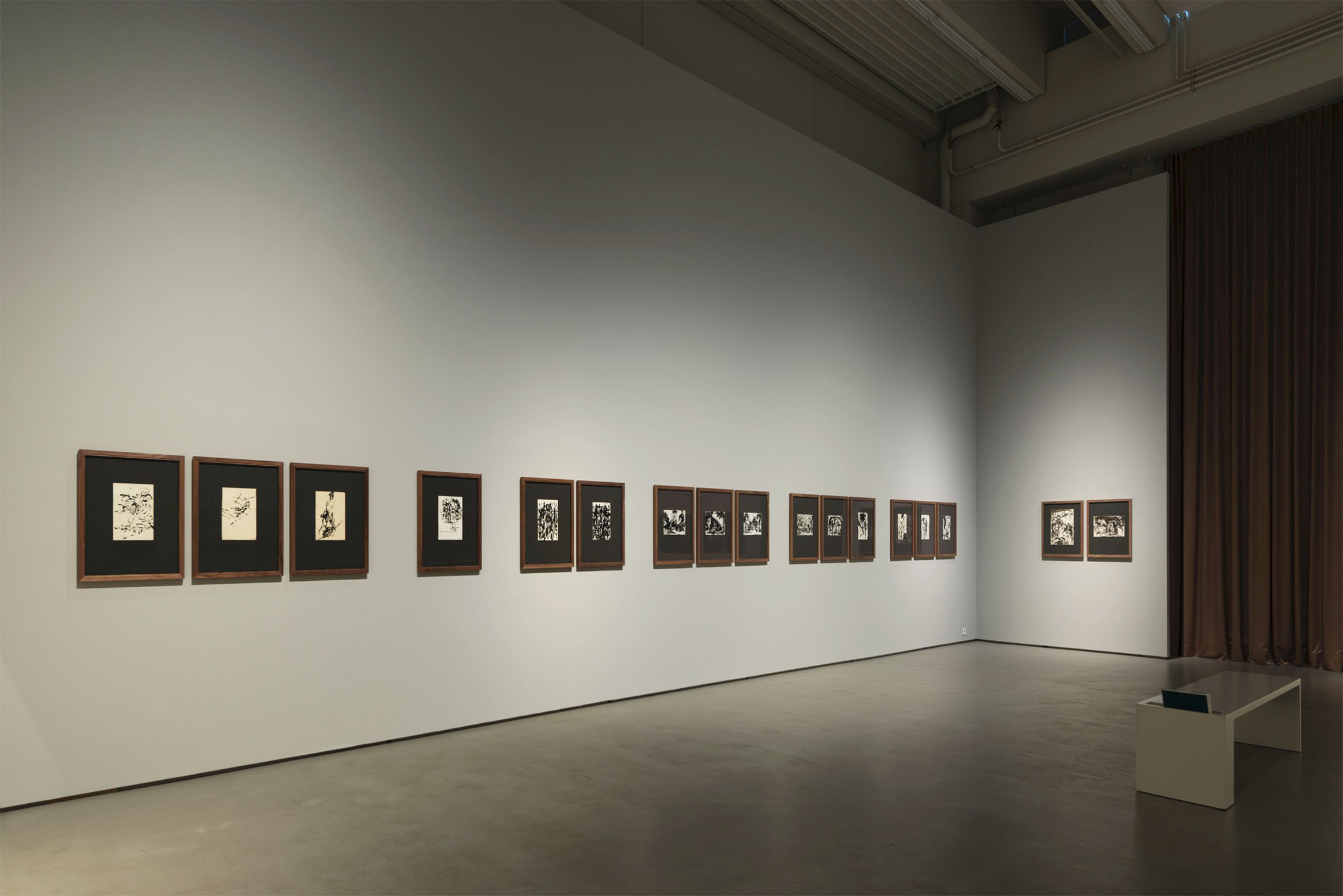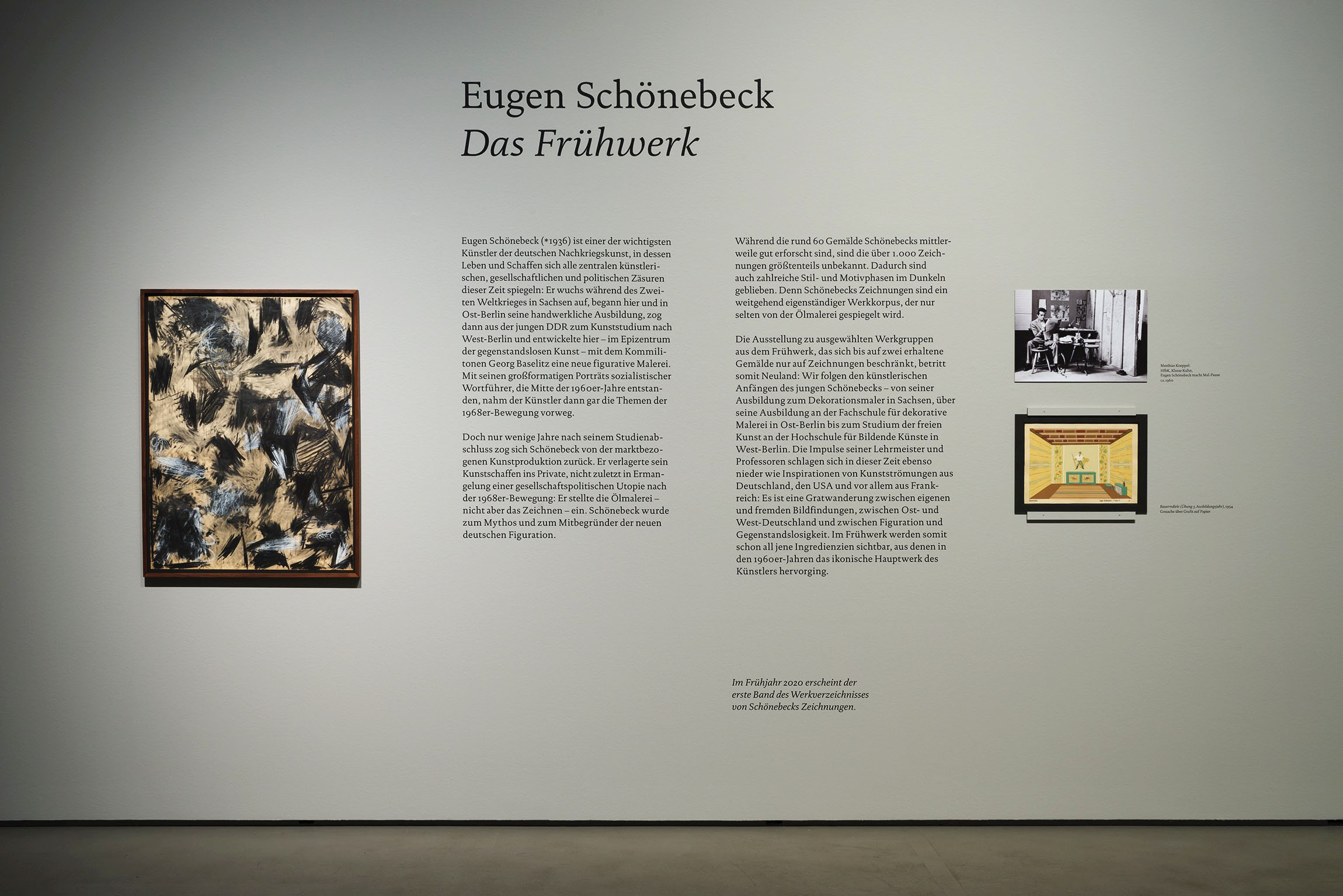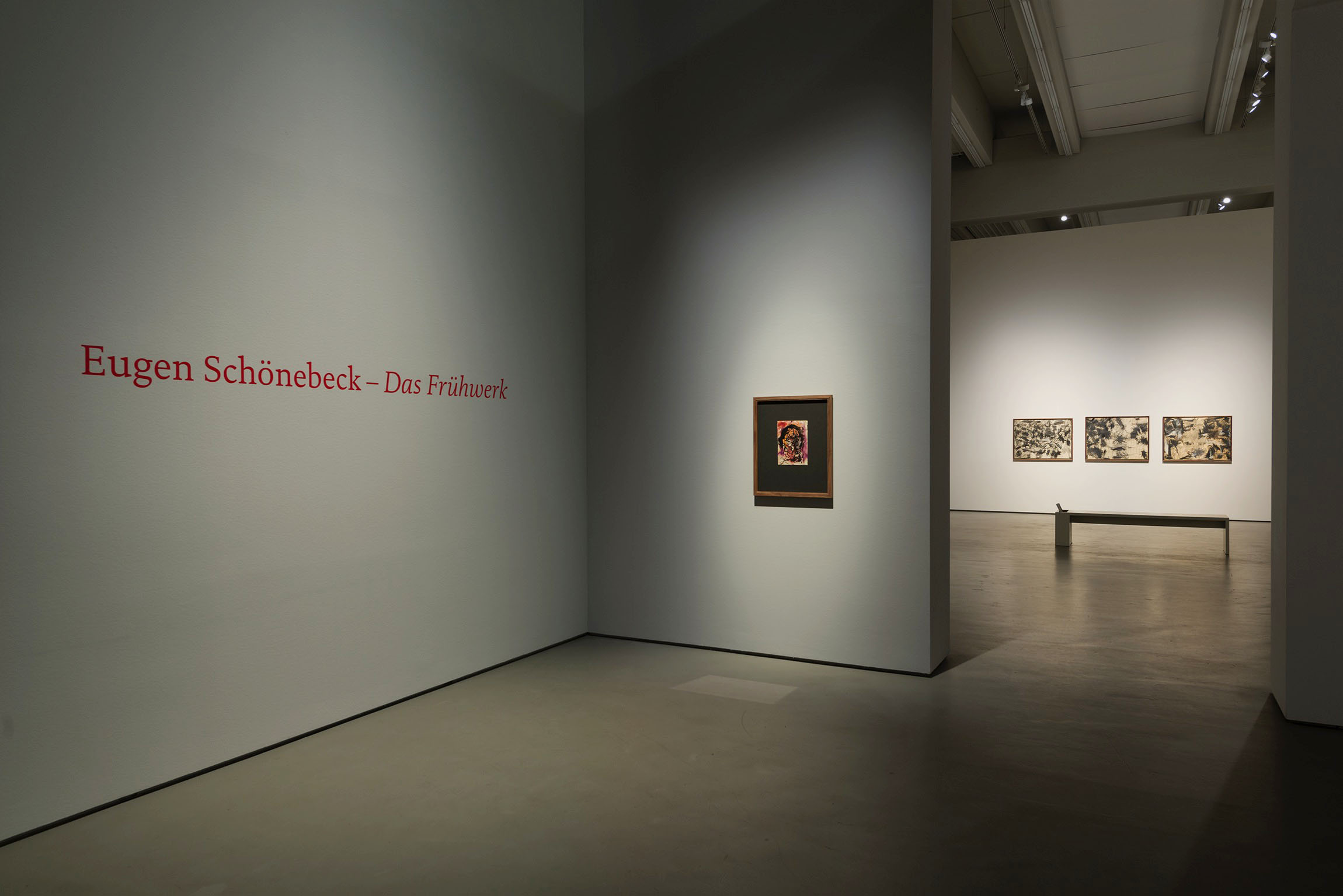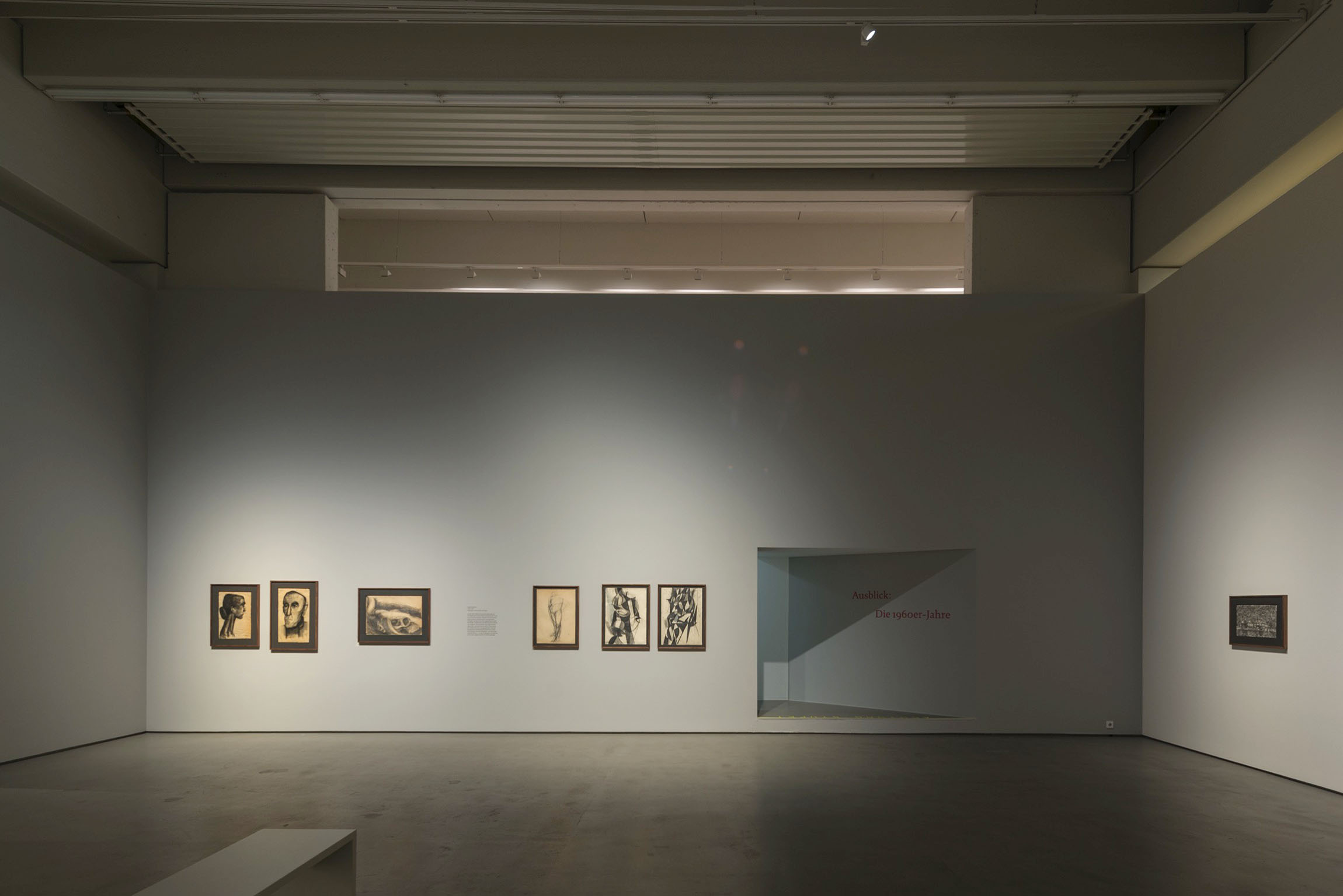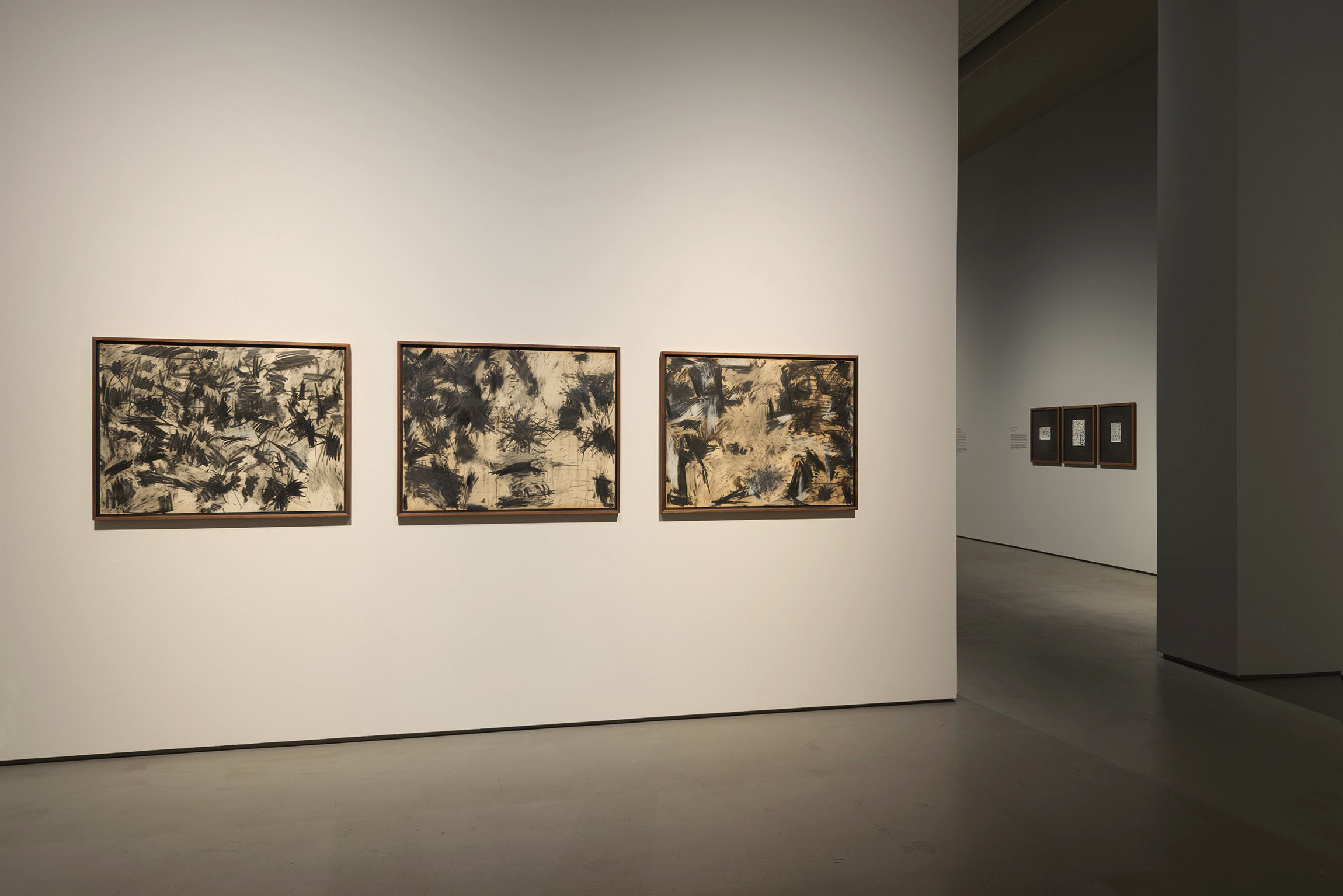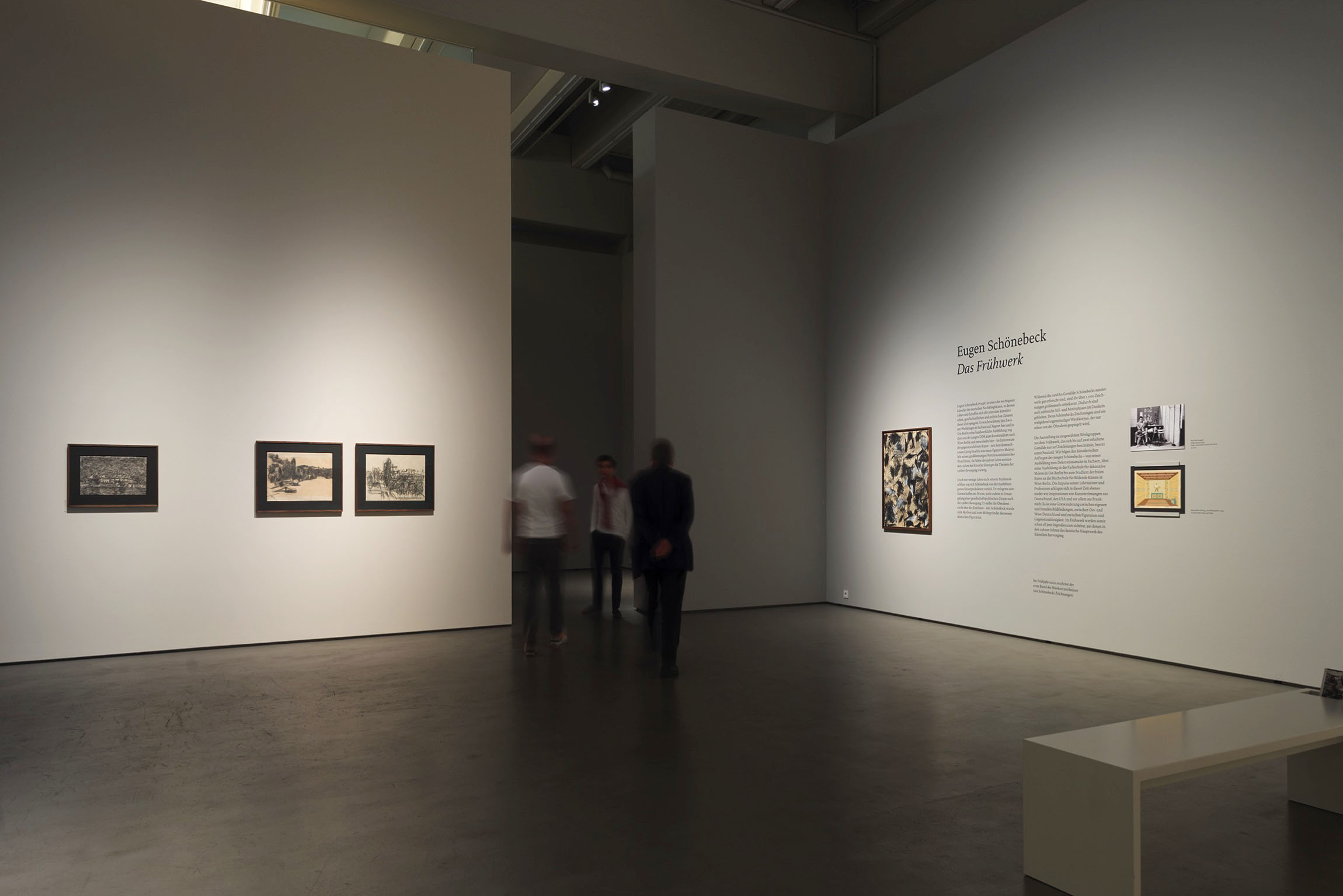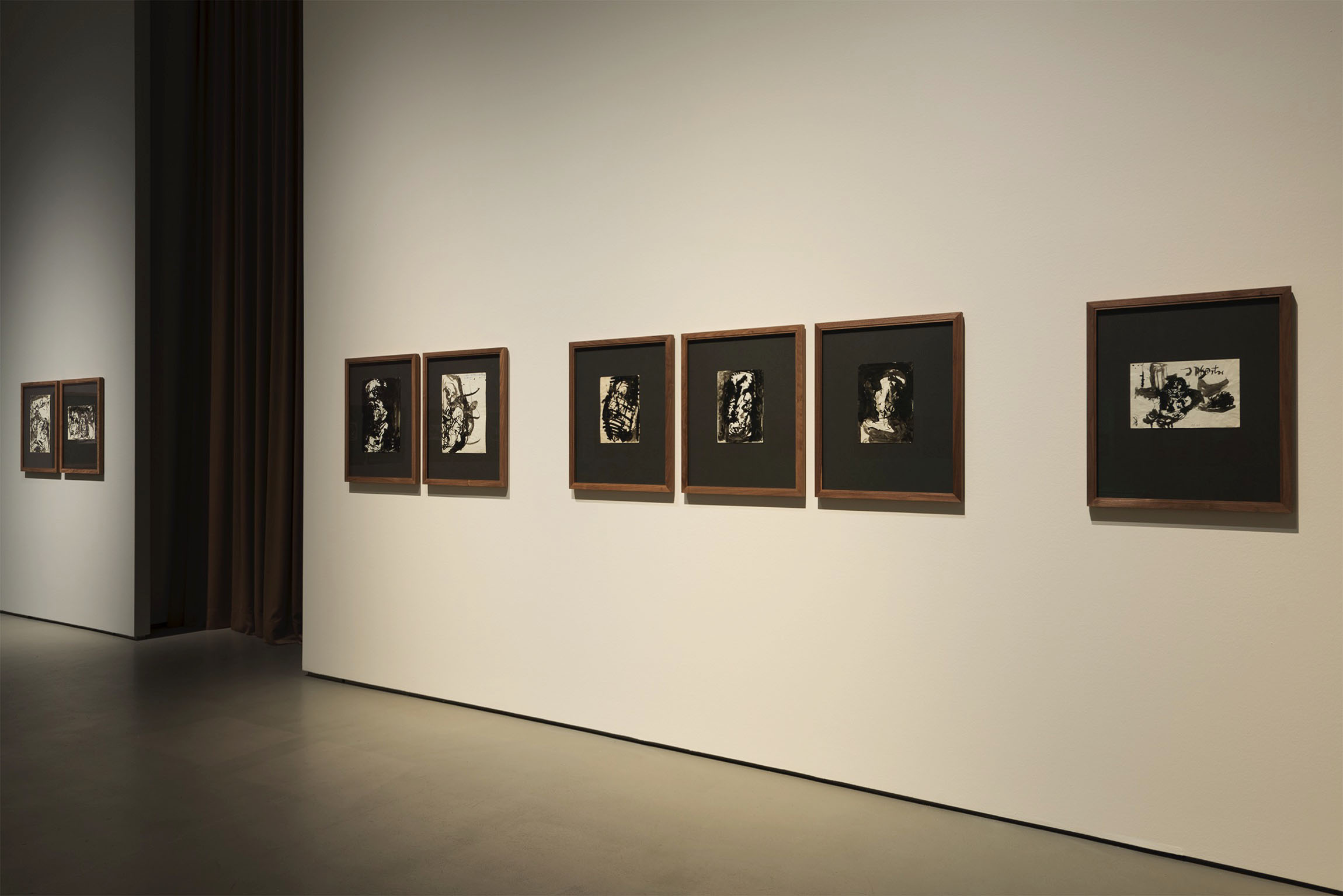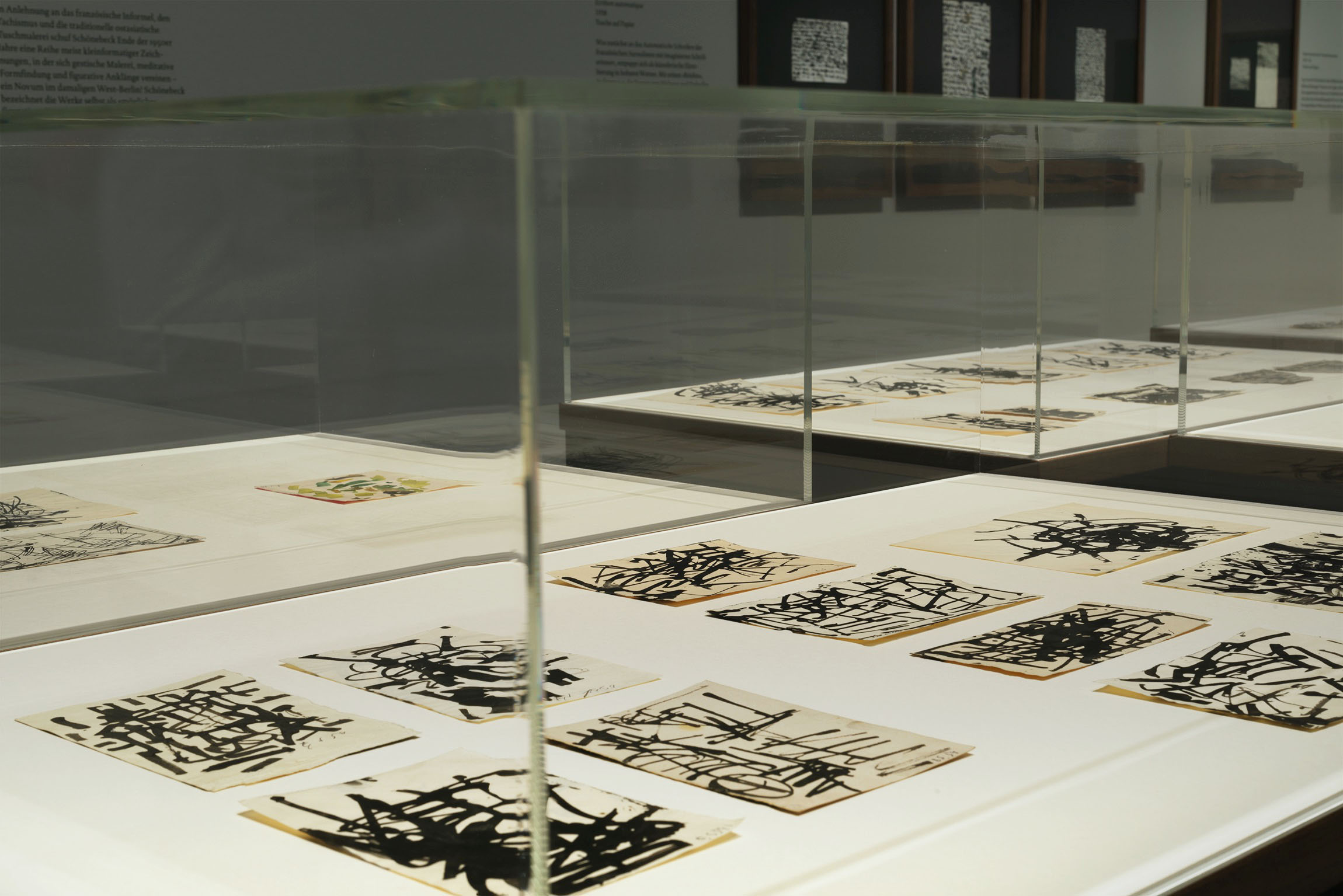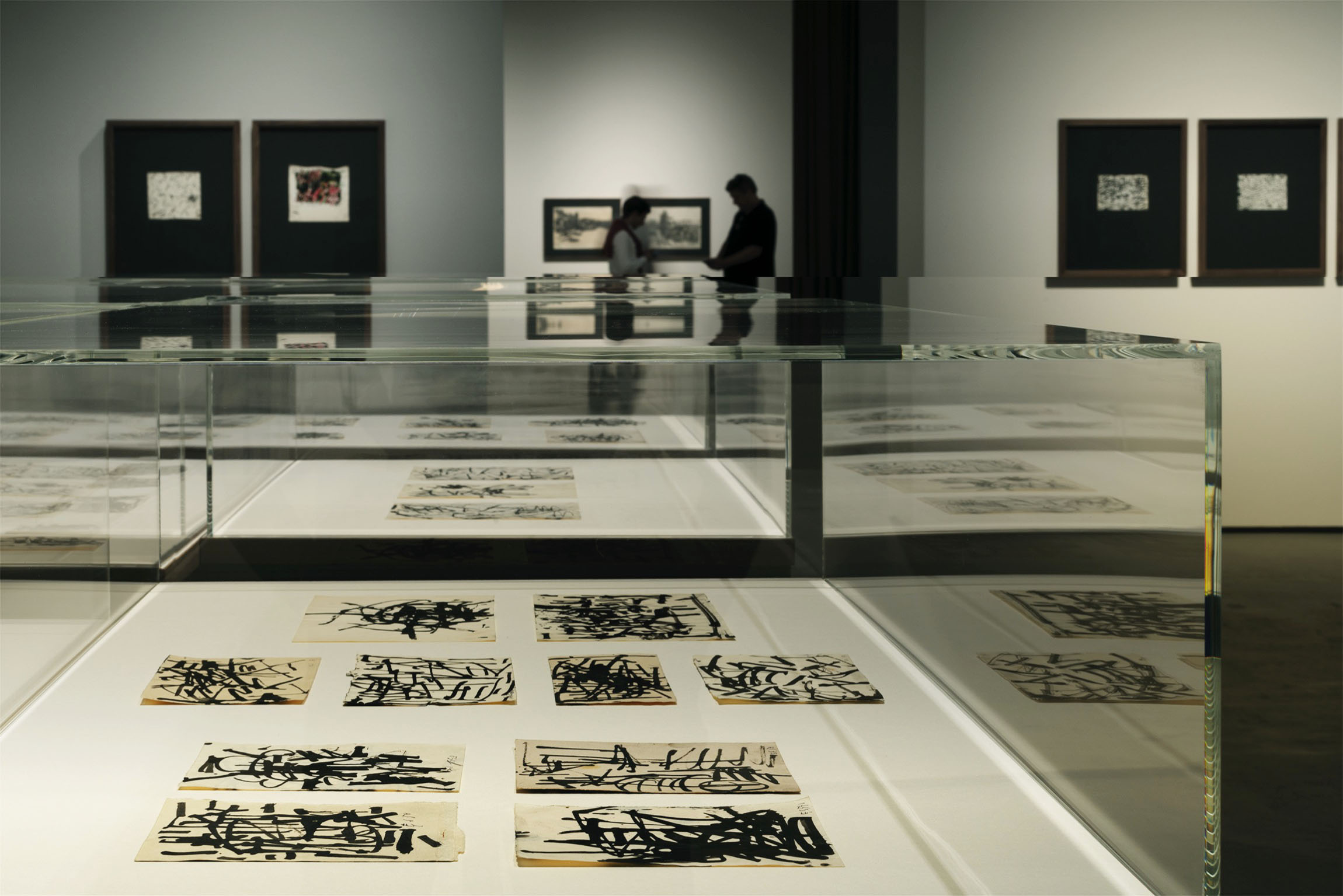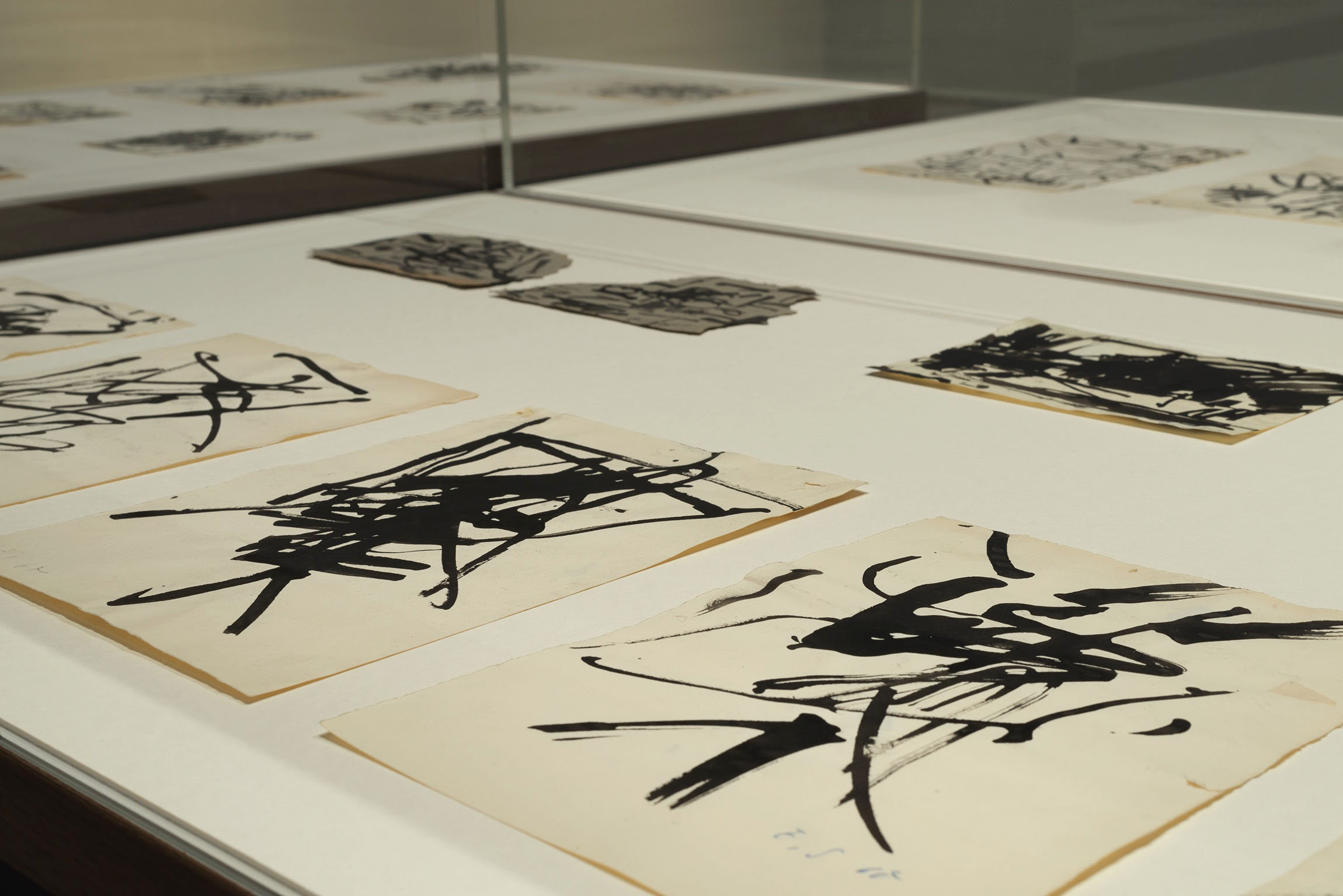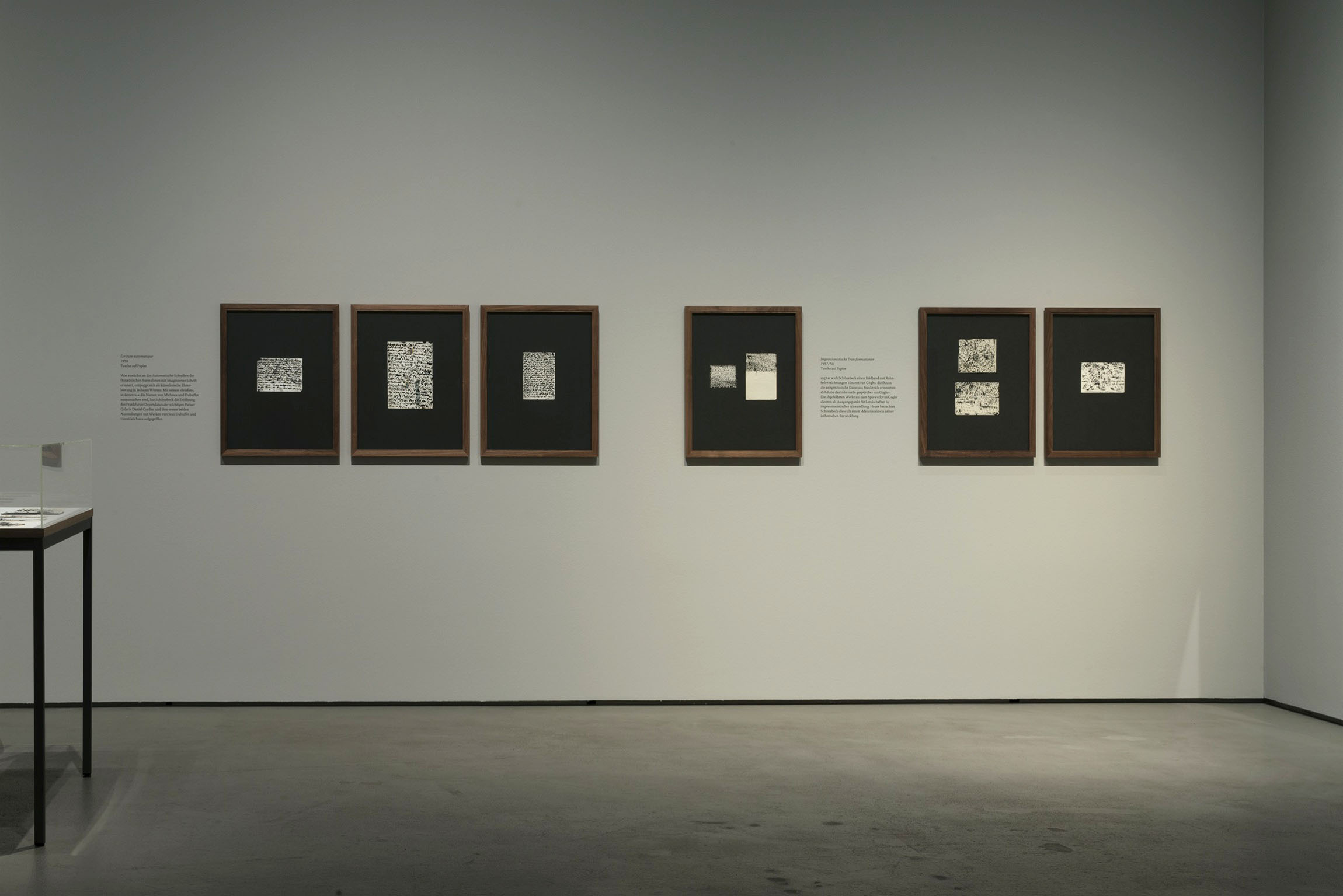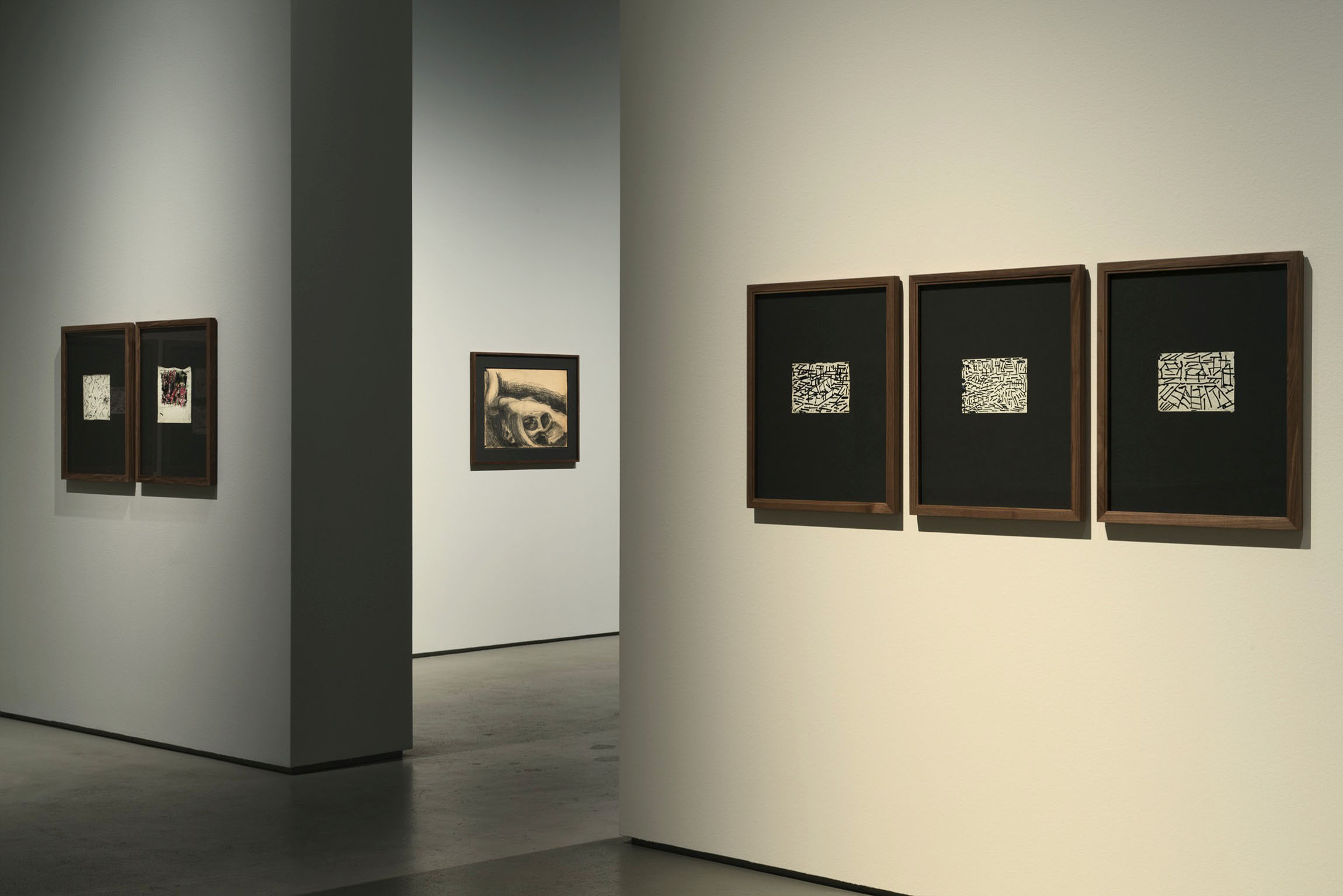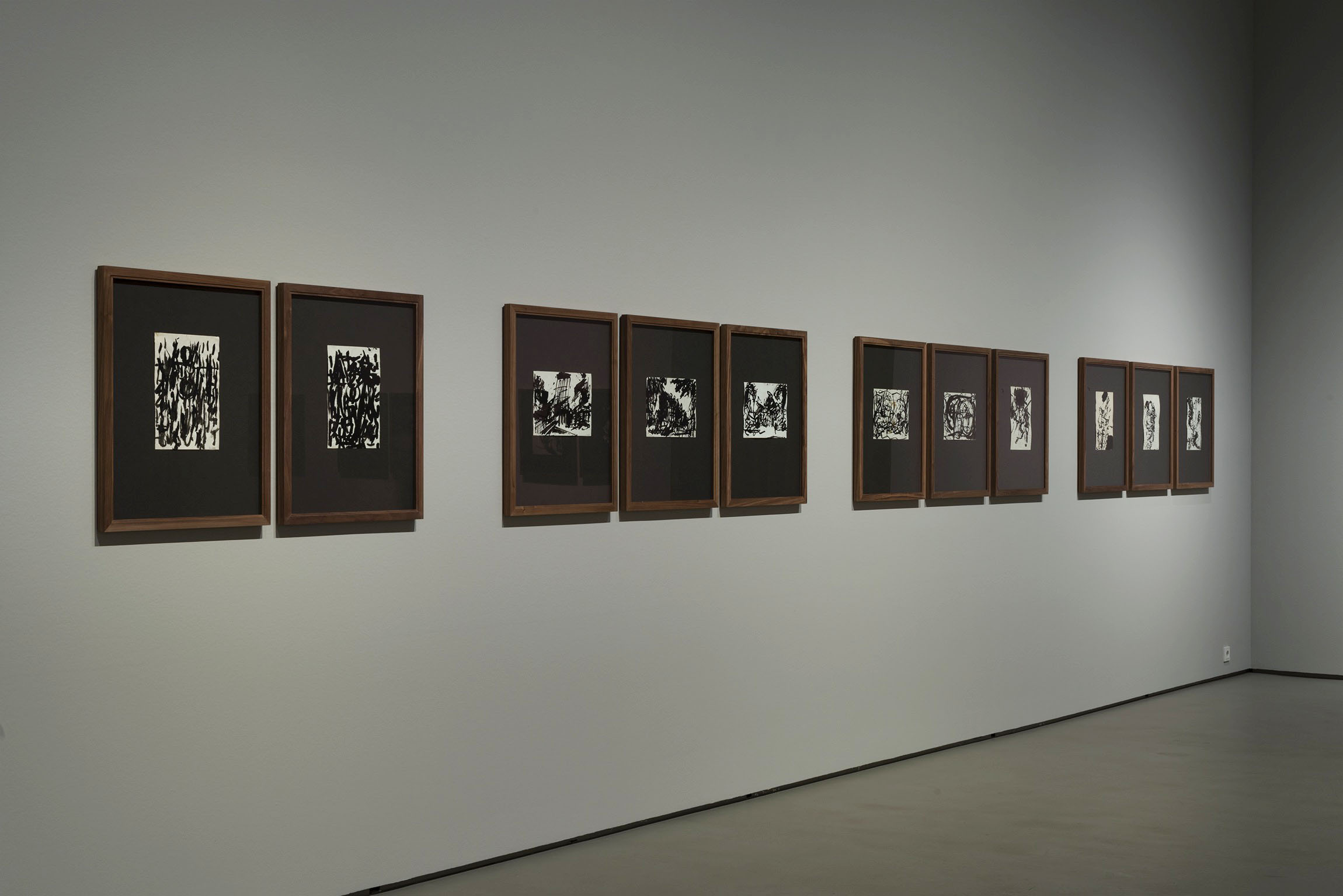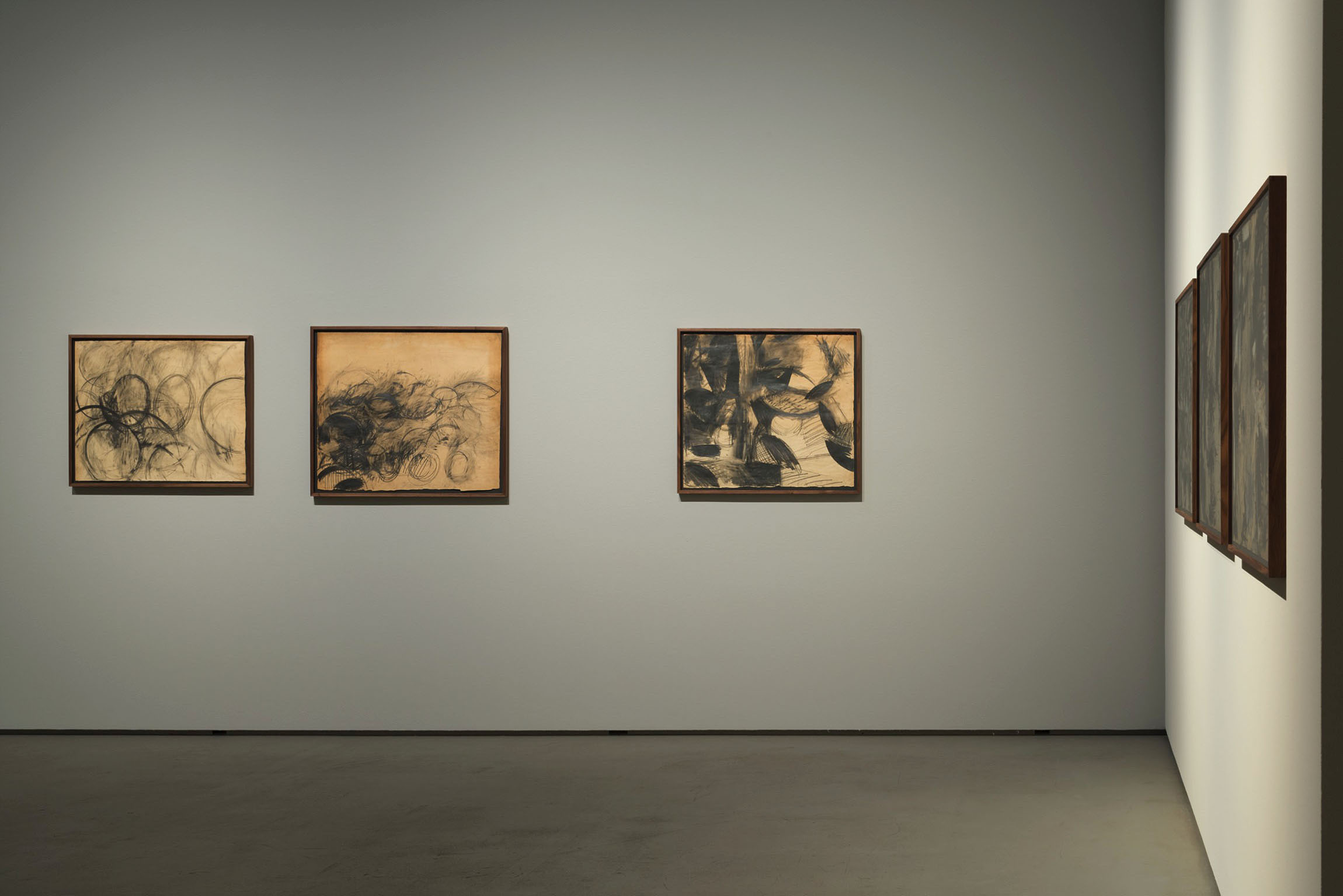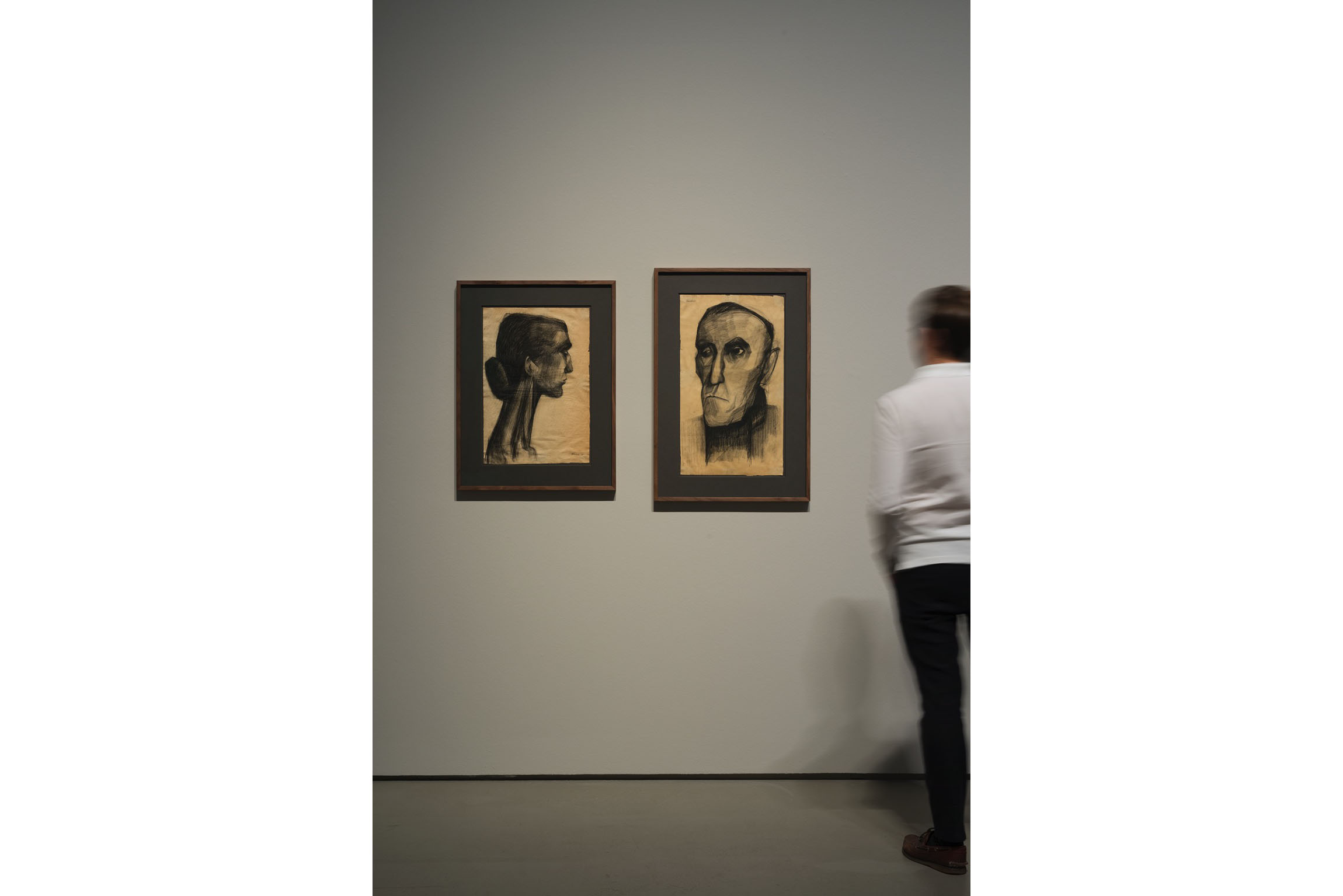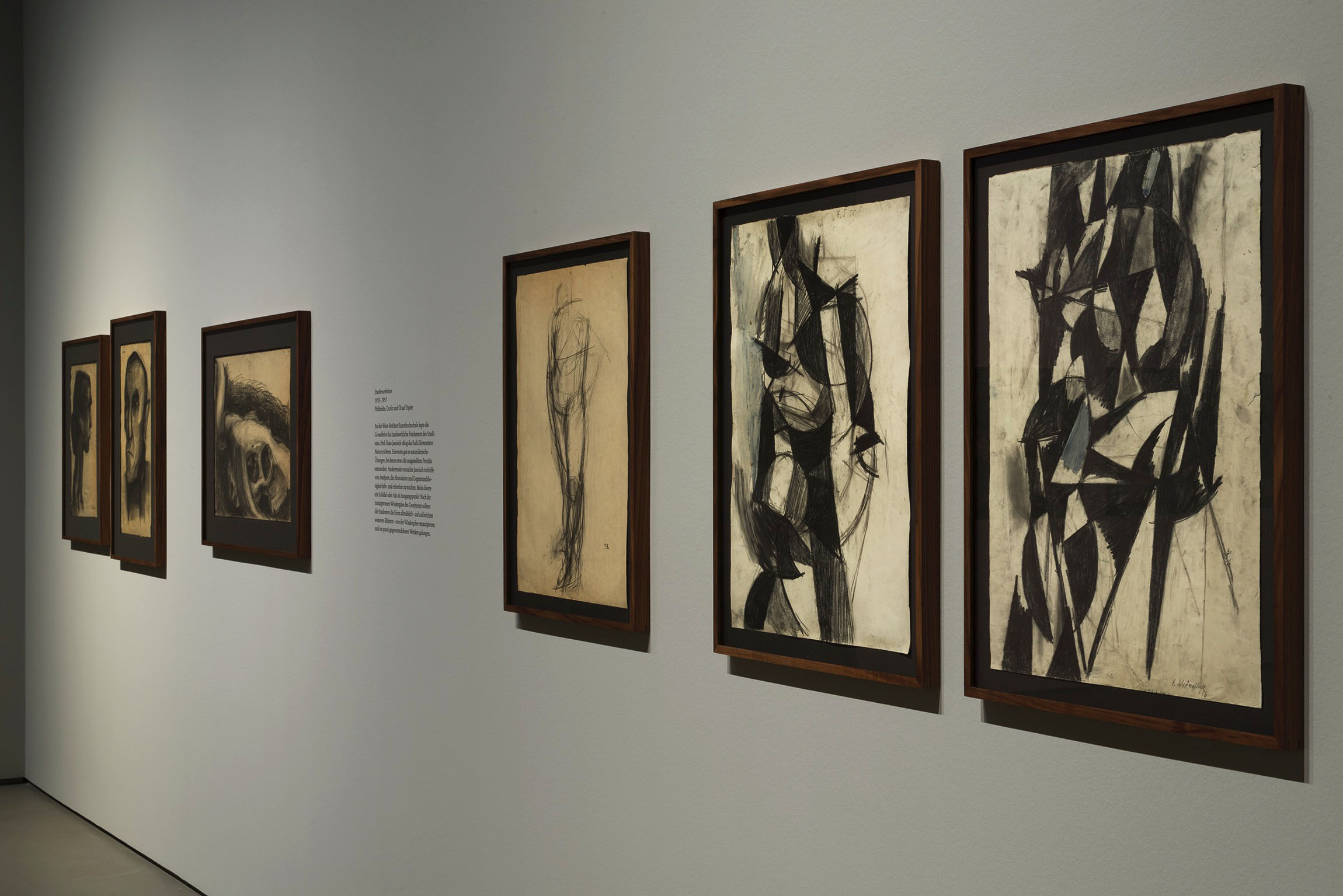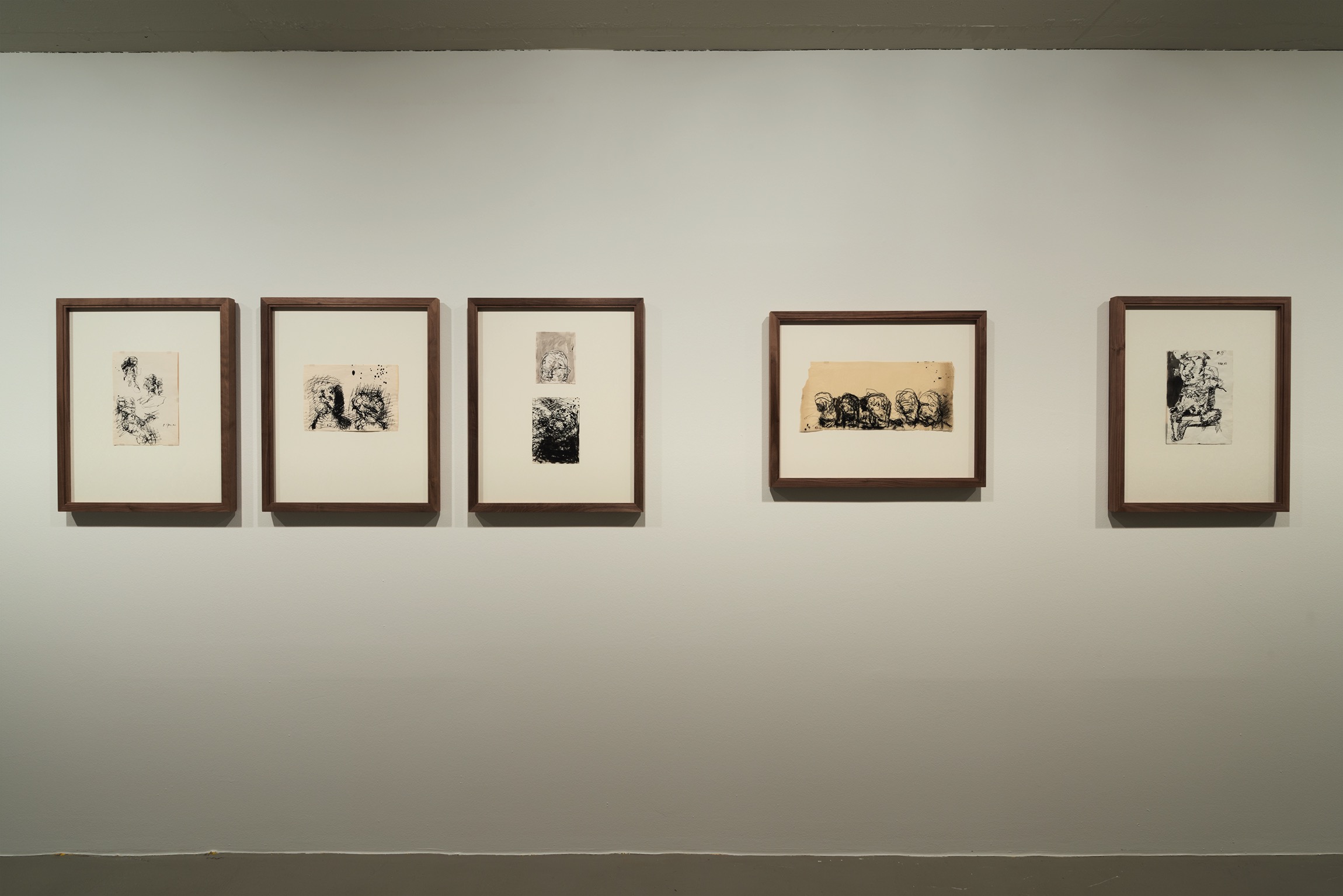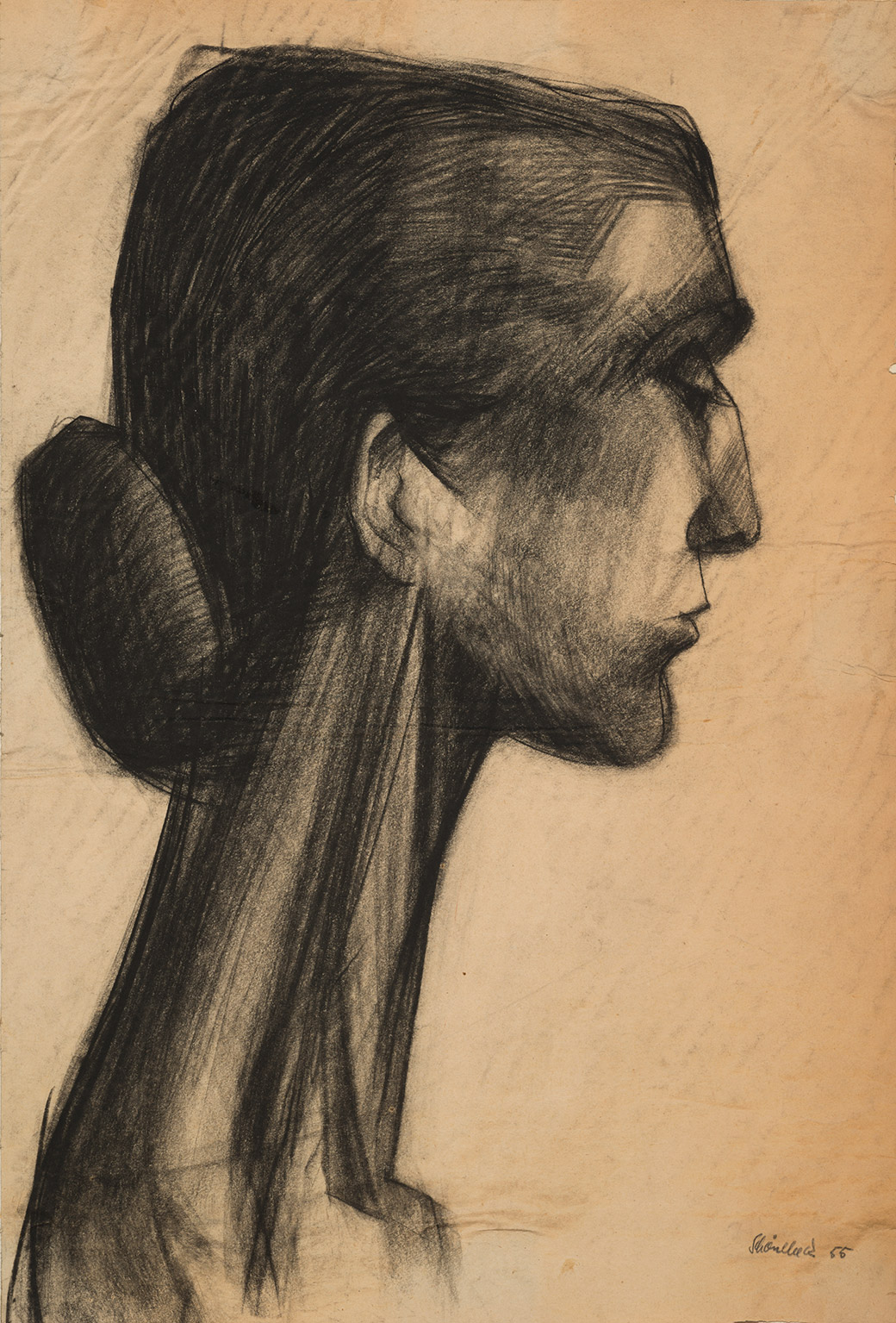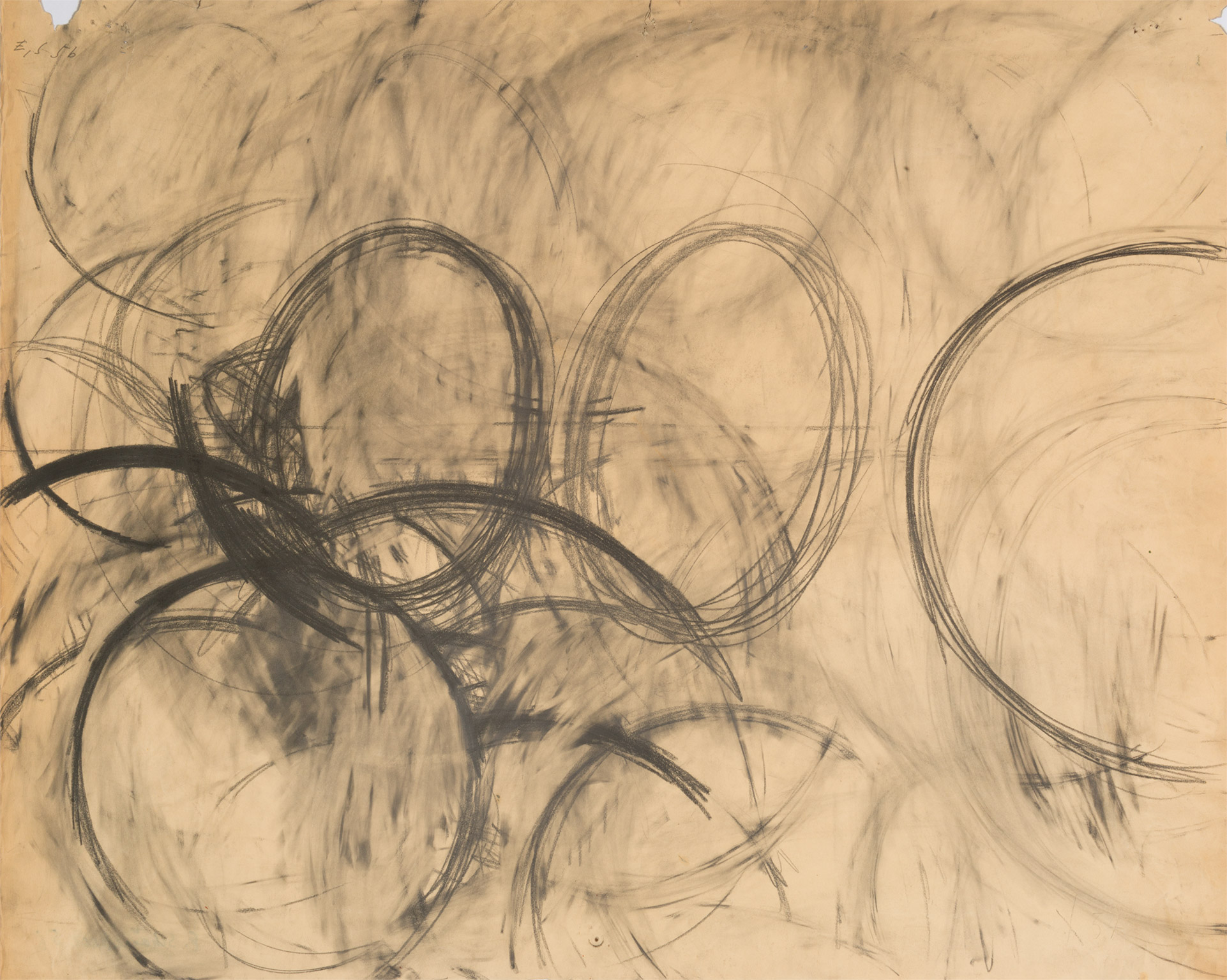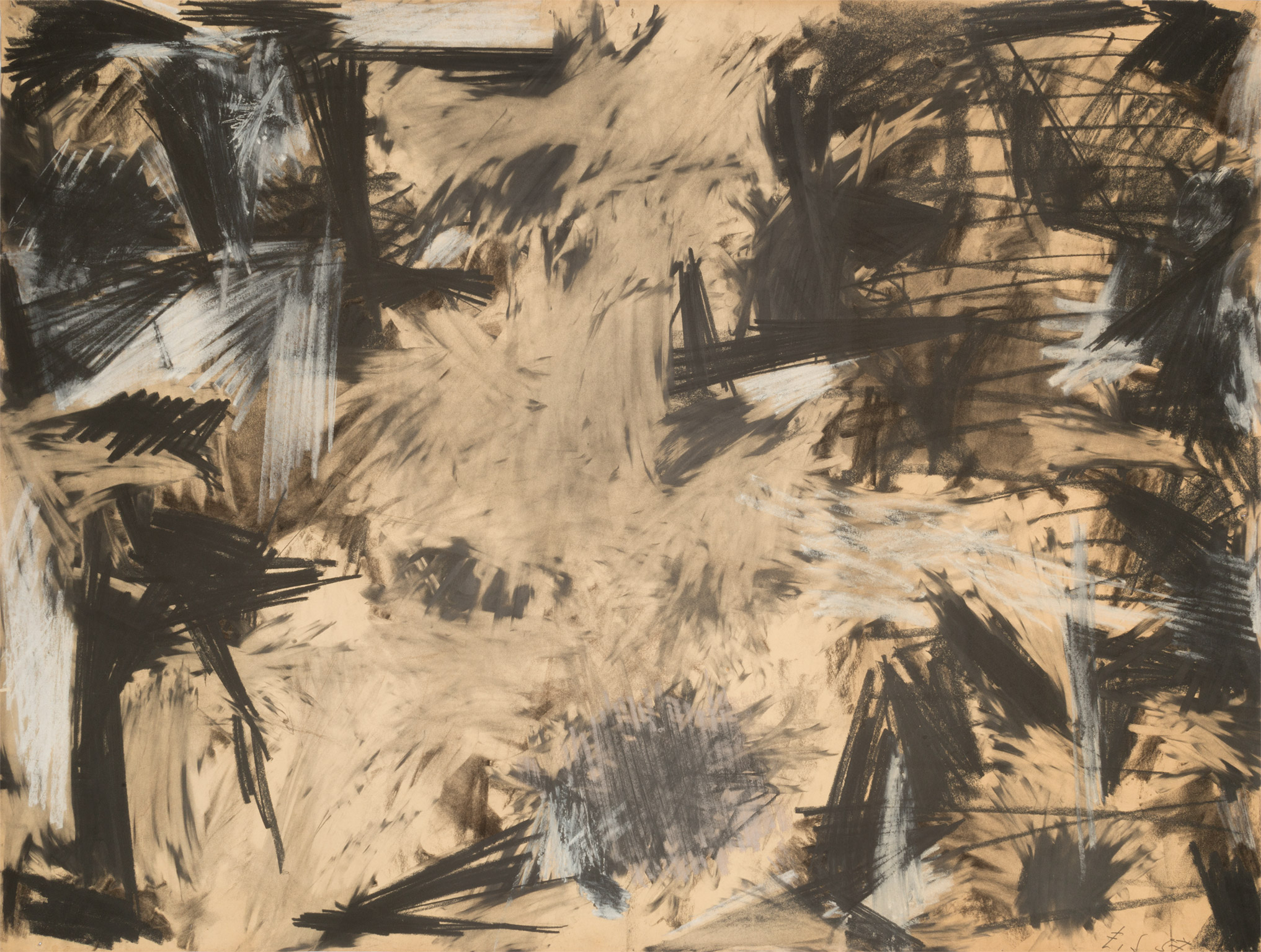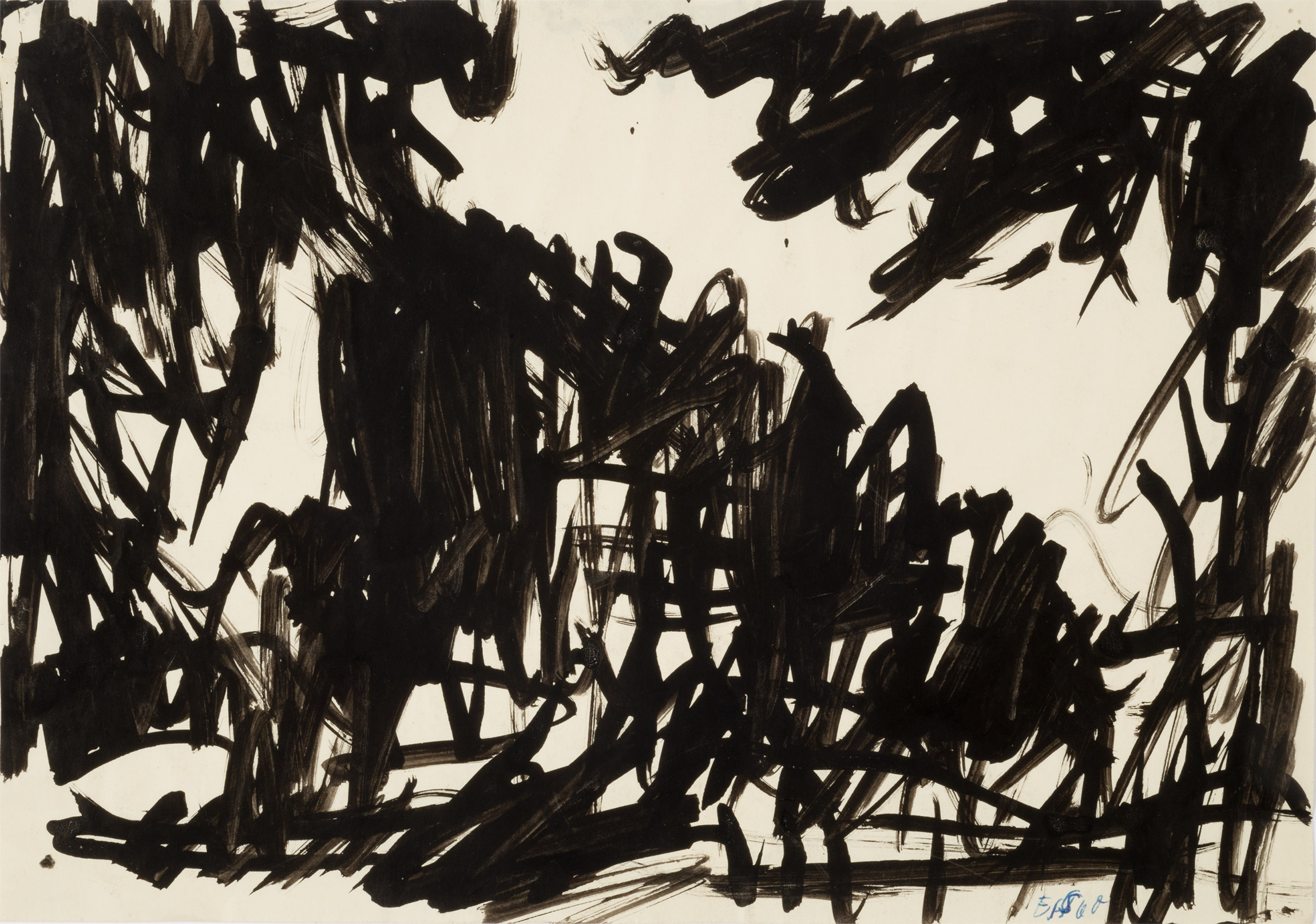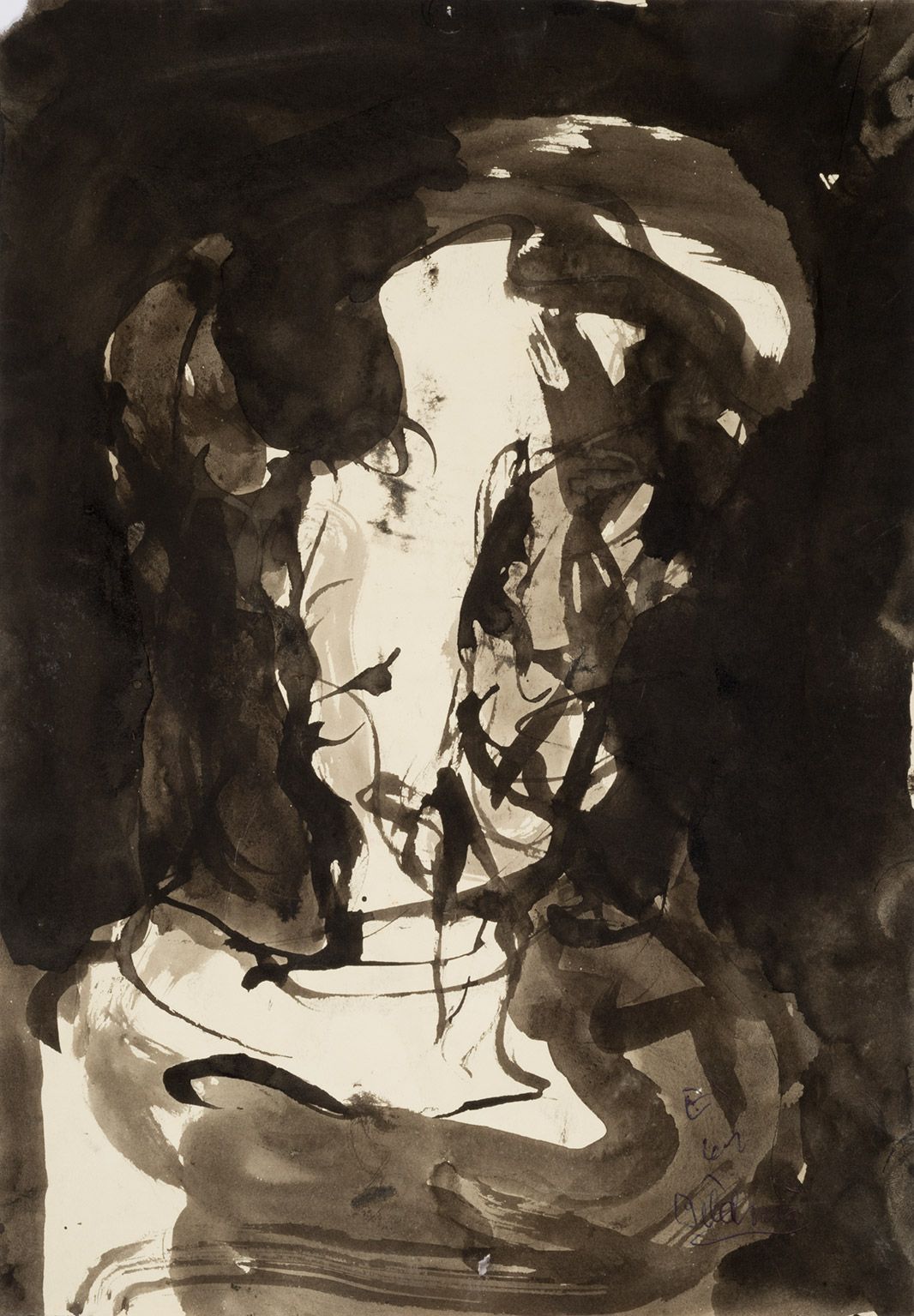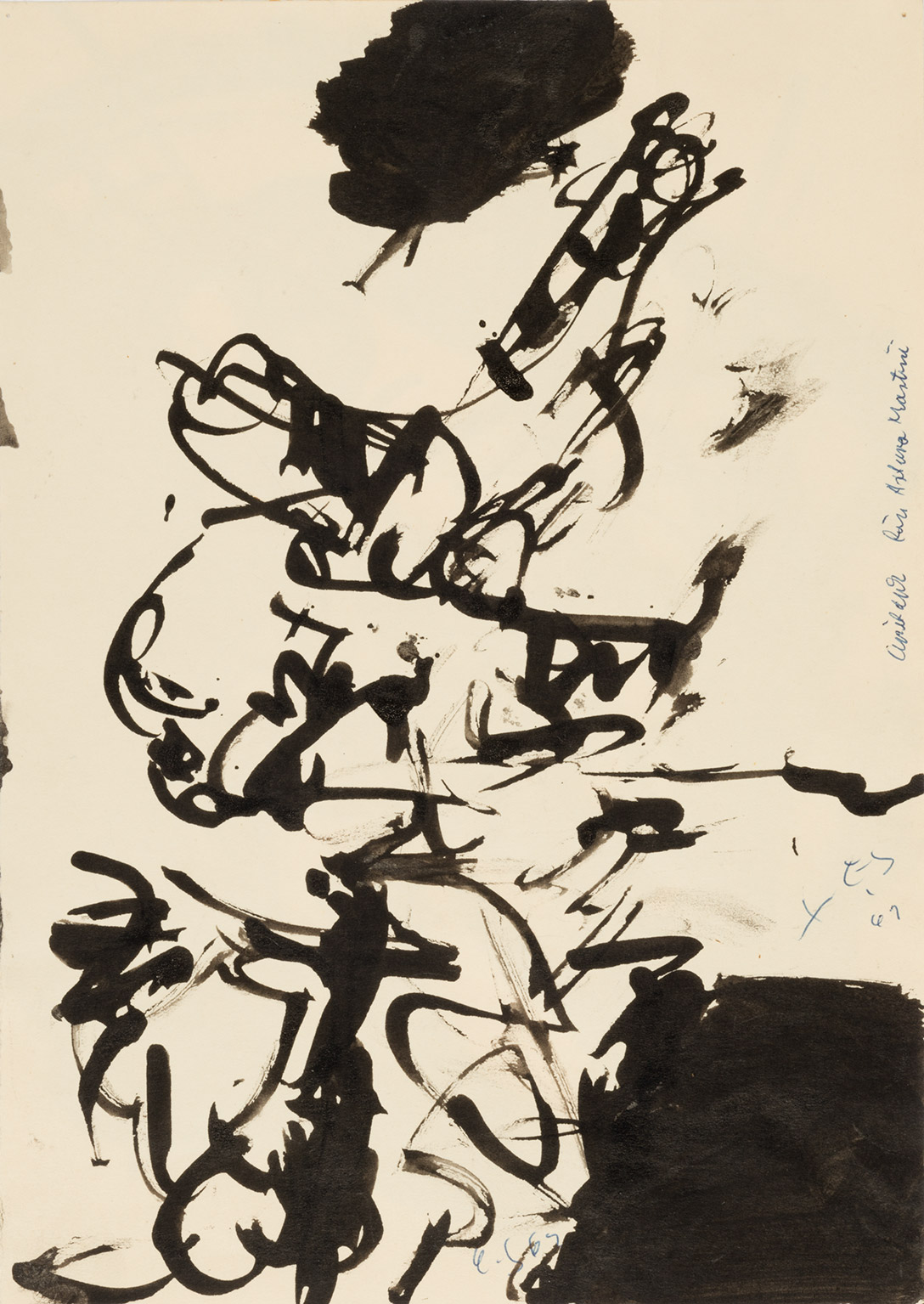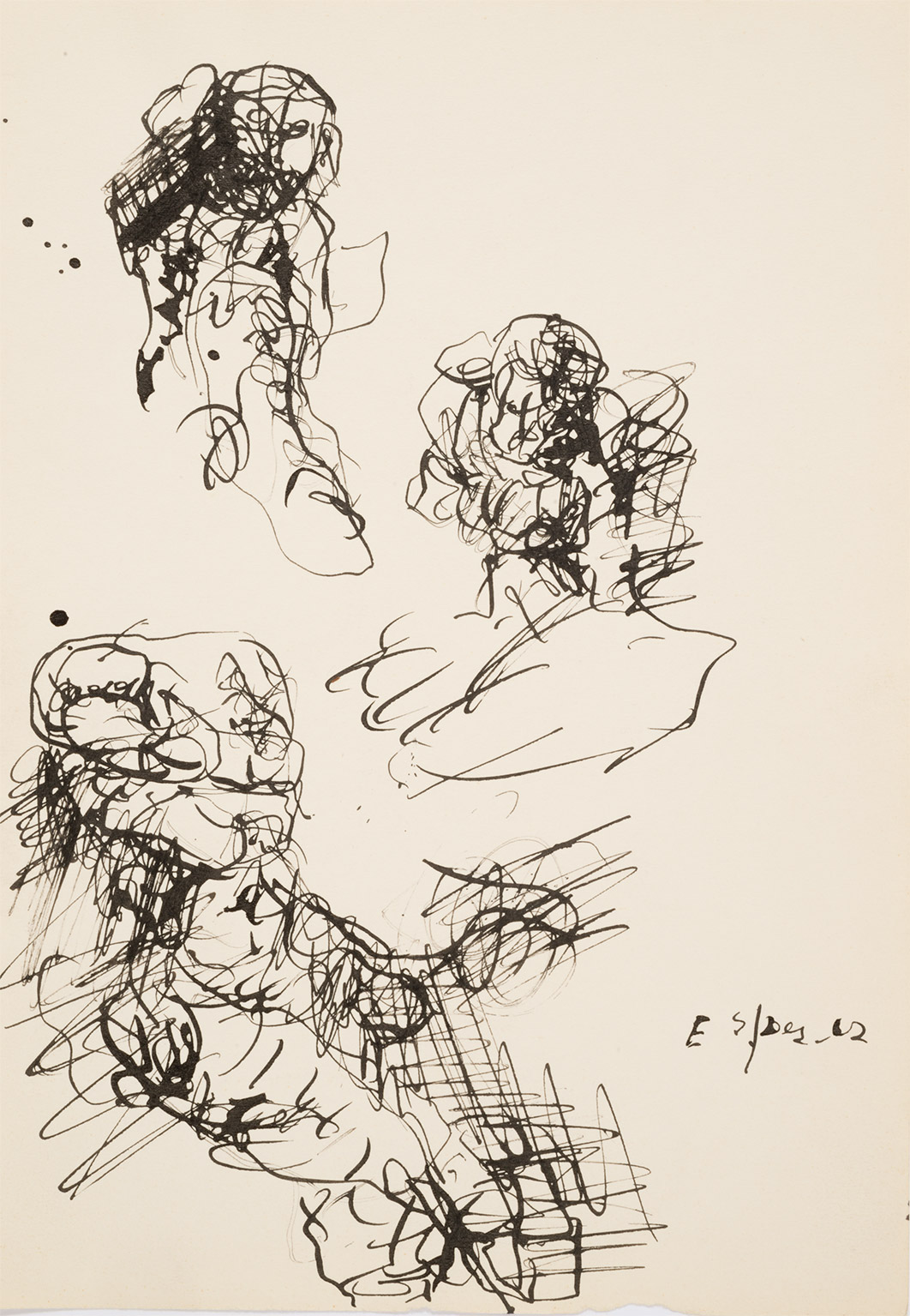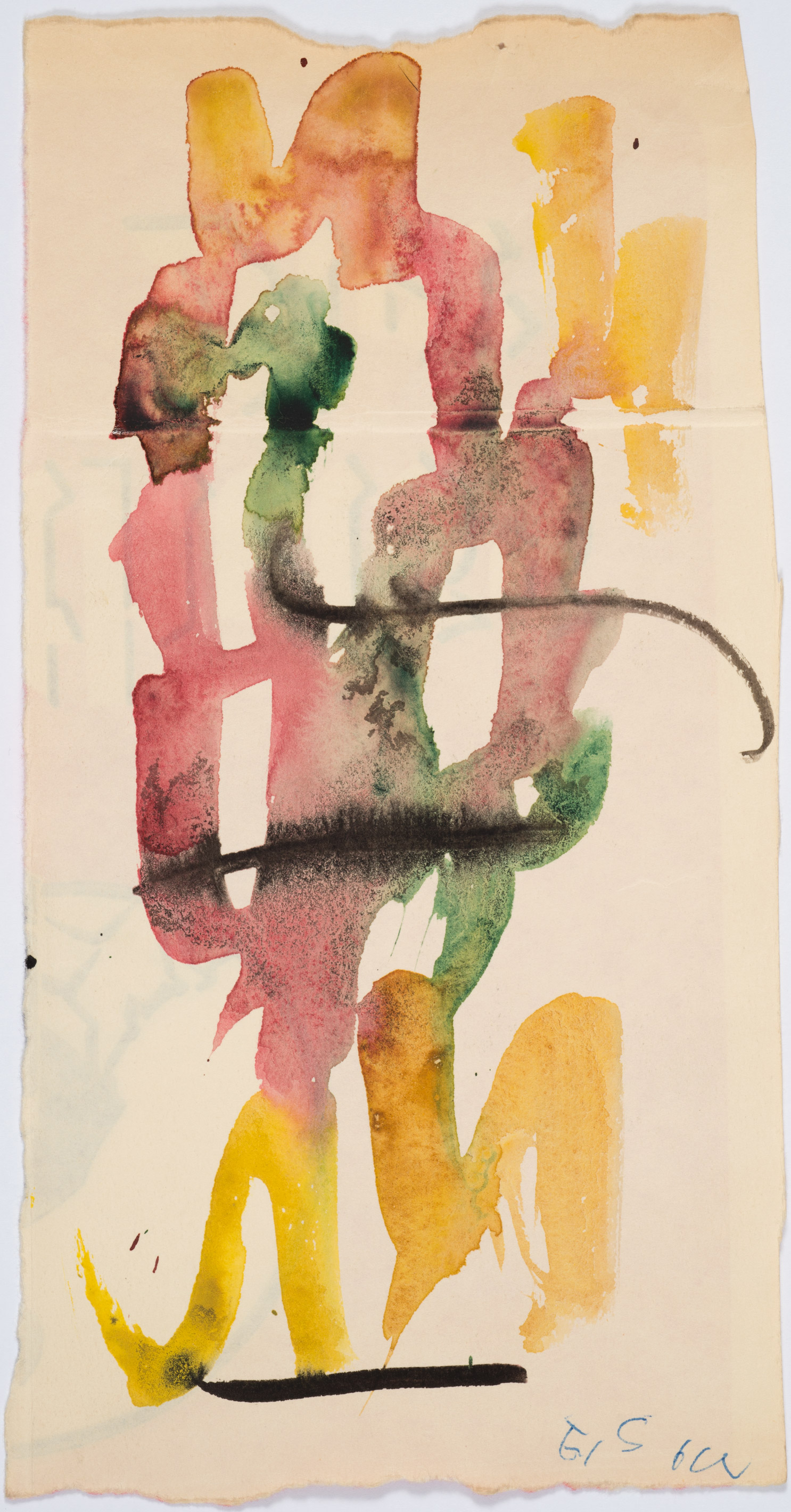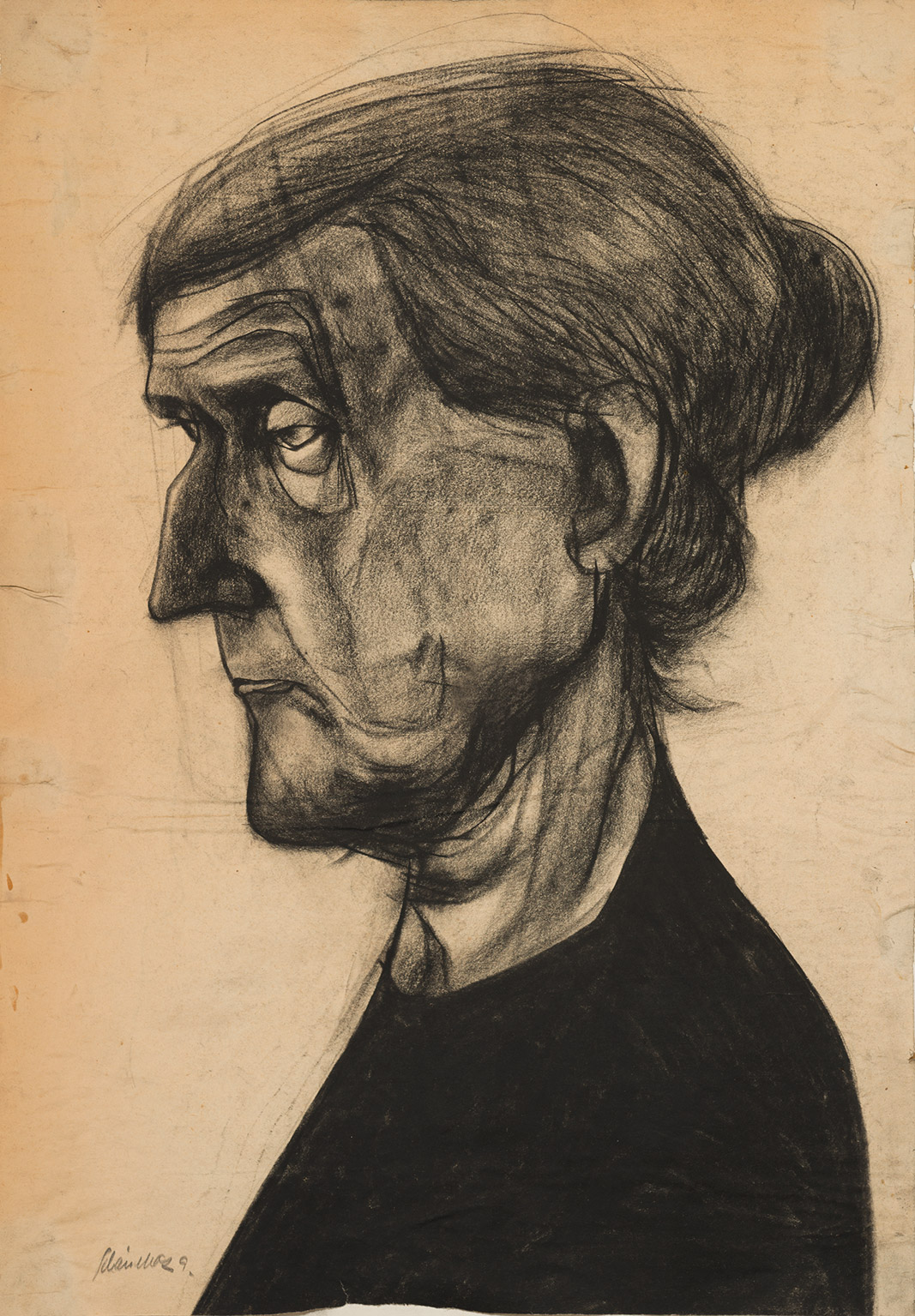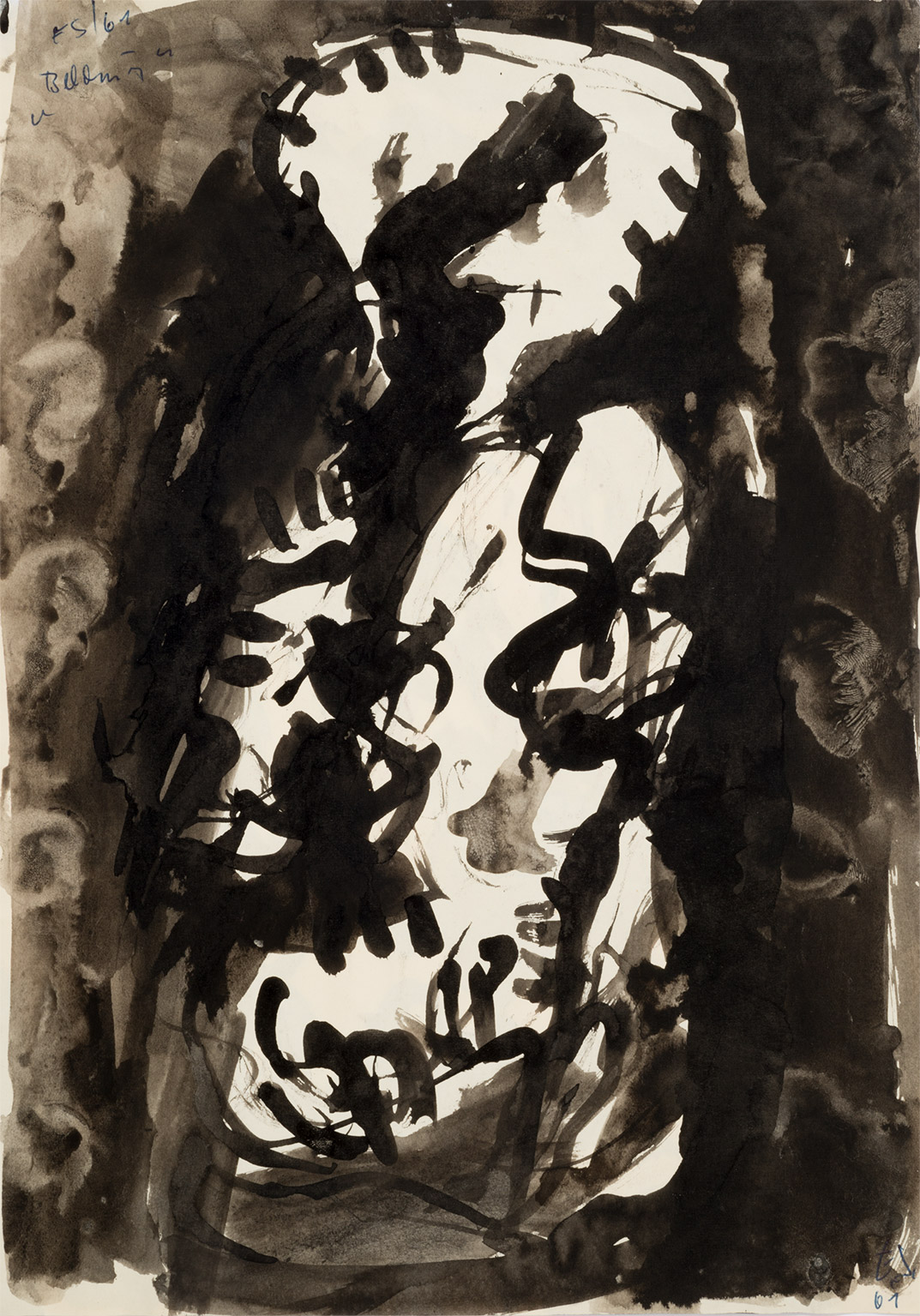Eugen Schönebeck
Das Frühwerk
Works
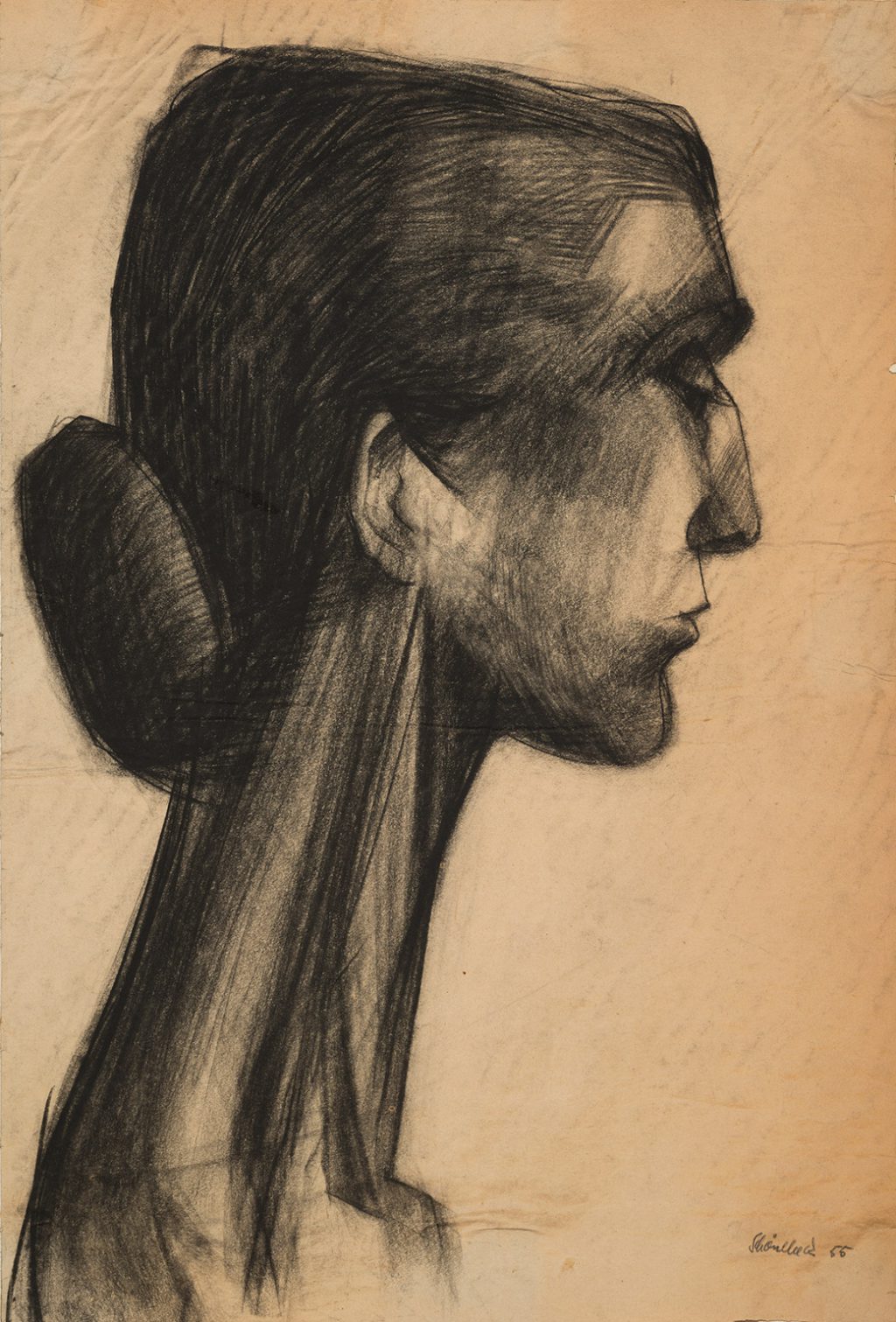
Bildnis
1955
Pitt chalk on paper
57 × 38.7 cm
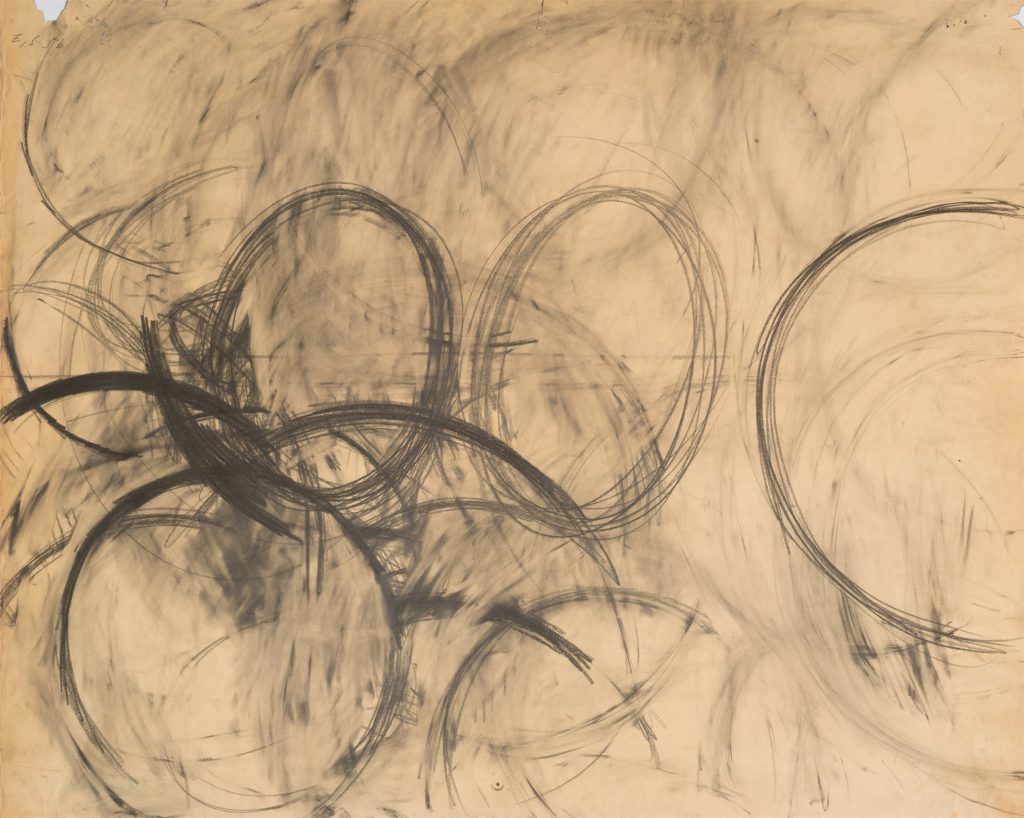
Untitled
1956
Graphite on paper
62.5 × 77.2 cm
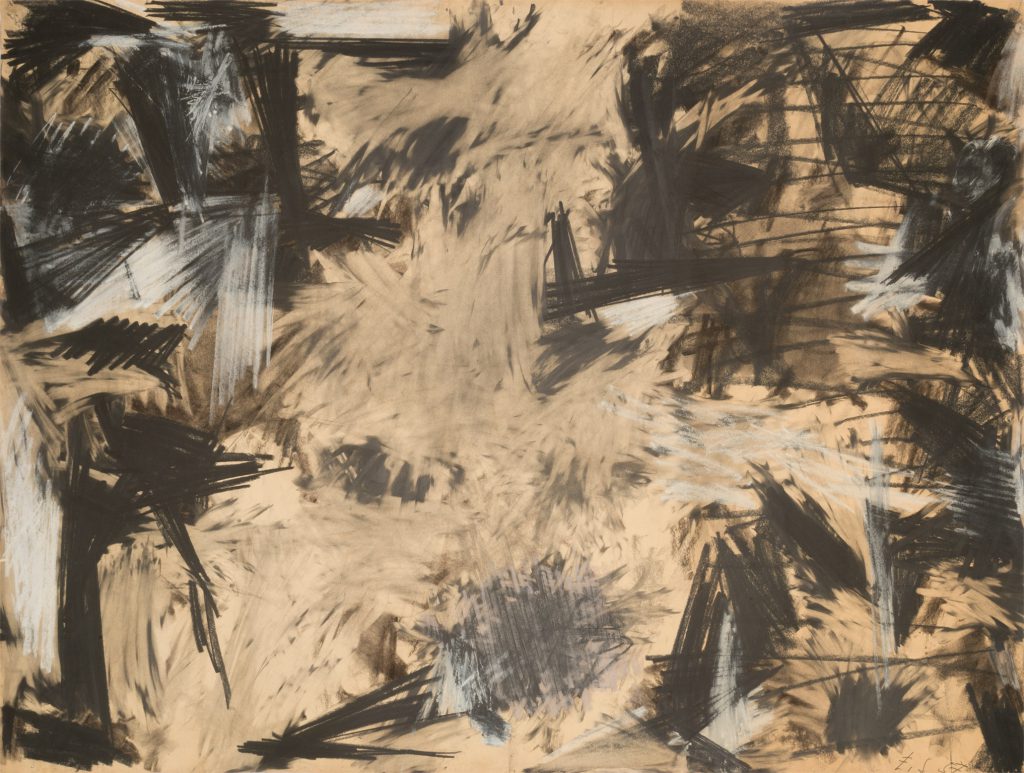
Untitled
1957
Graphite and oil pastel on paper
75.2 × 99.5 cm
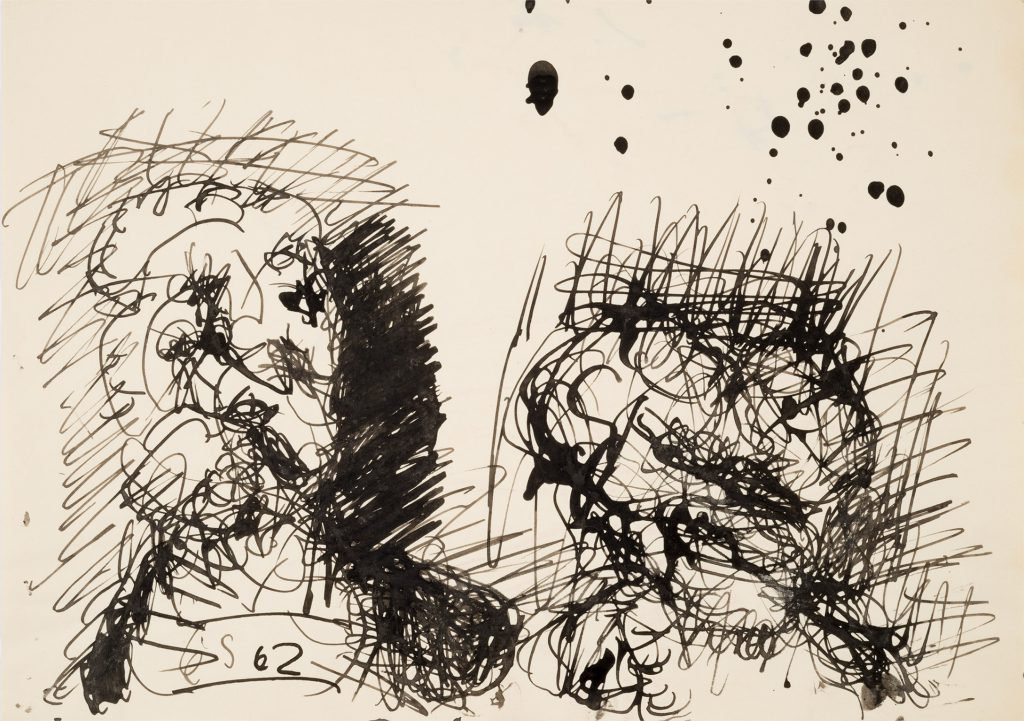
Disput
1962
Ink on paper
21 × 29.5 cm
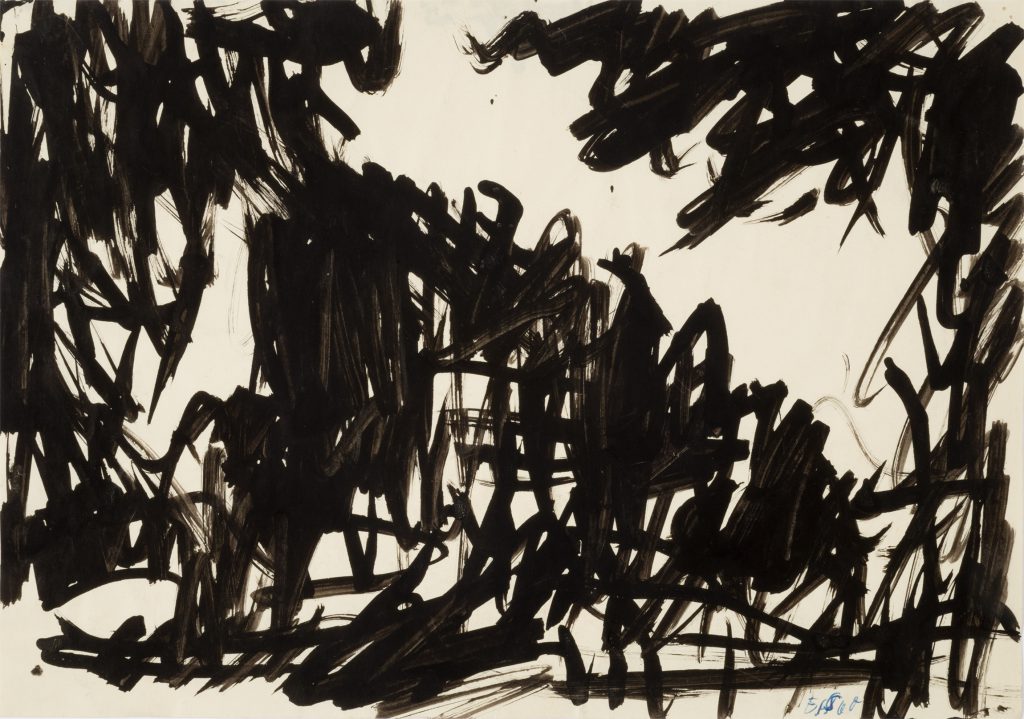
Park
1960
Ink on paper
20.8 × 29.5 cm
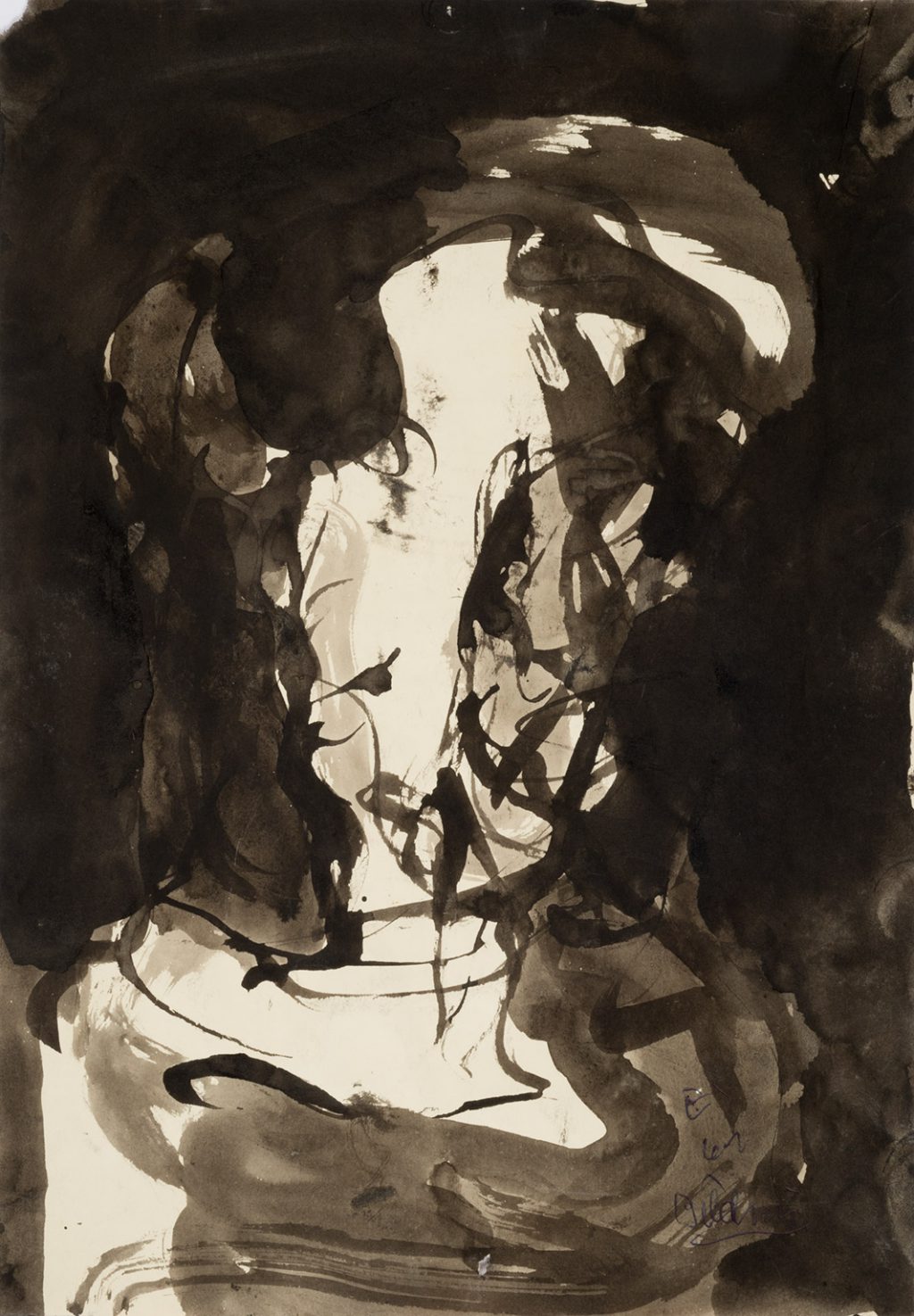
Bildnis
1961
Ink on paper
29.7 × 20.8 cm

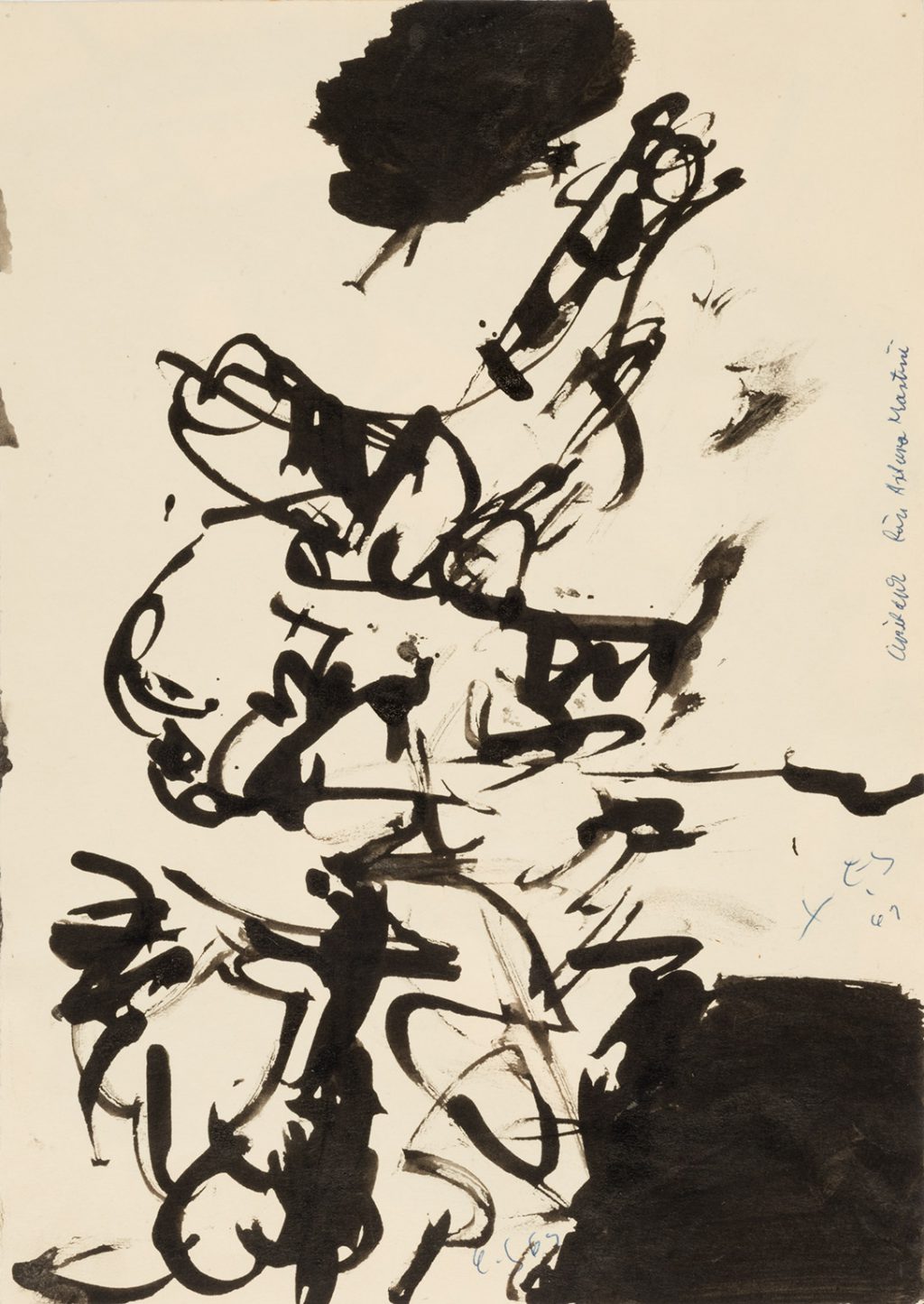
Epitaph für Arturo Martini
1961
Ink on paper
29.5 × 20.9
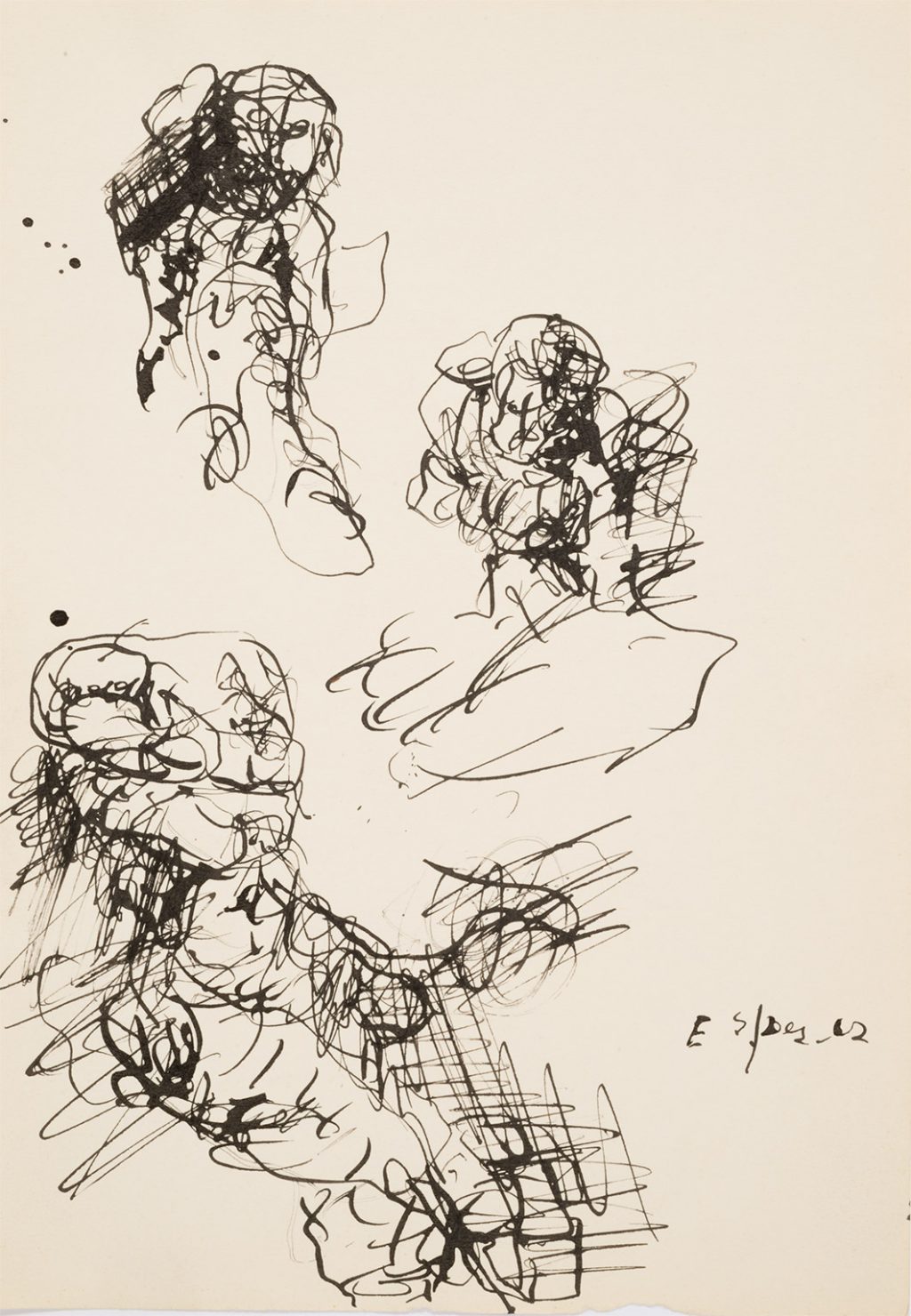
Untitled
1962
Ink on paper
29.7 × 21 cm
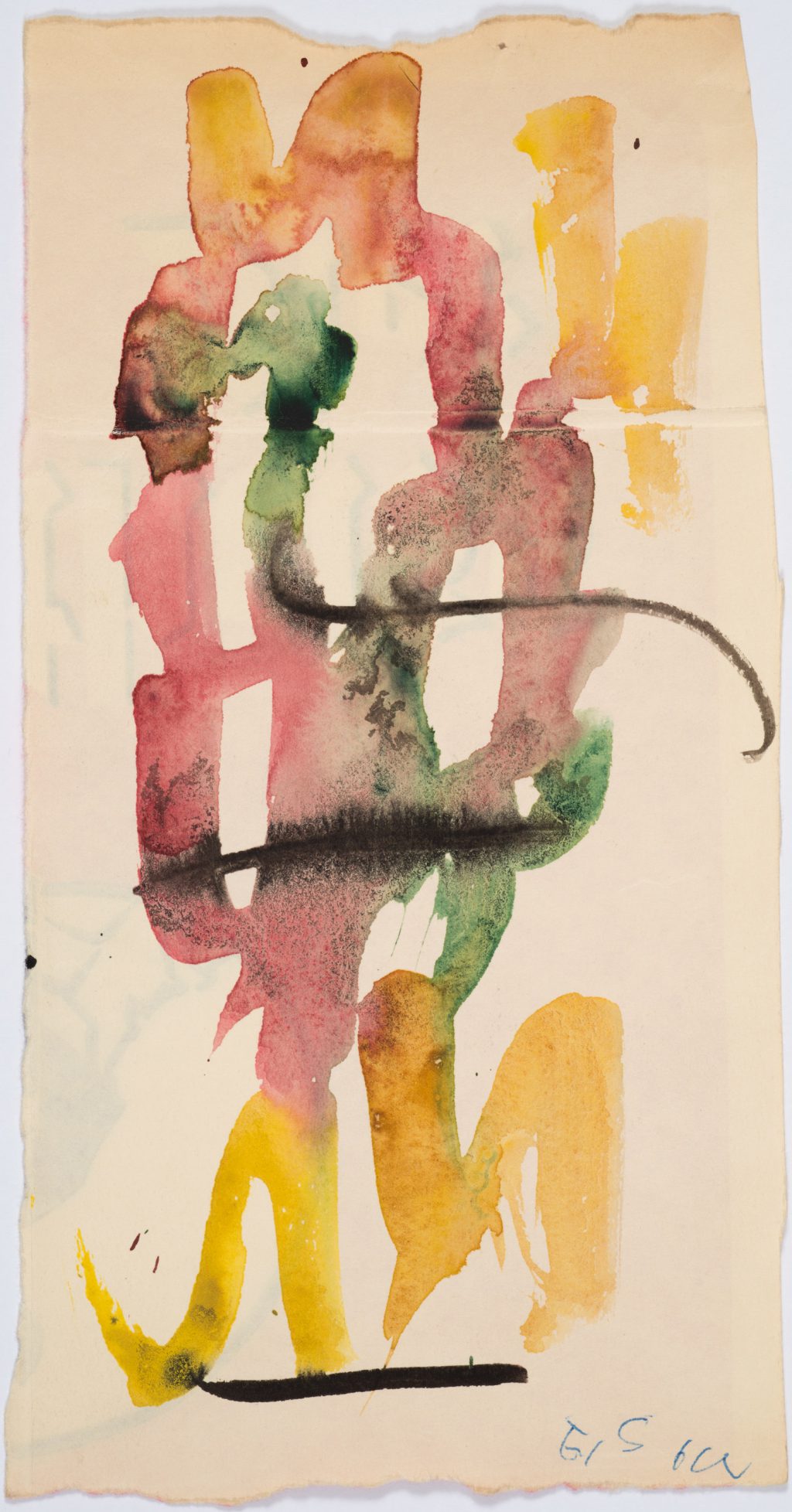
Untitled
1960
Watercolor on paper
23 × 12.1 cm
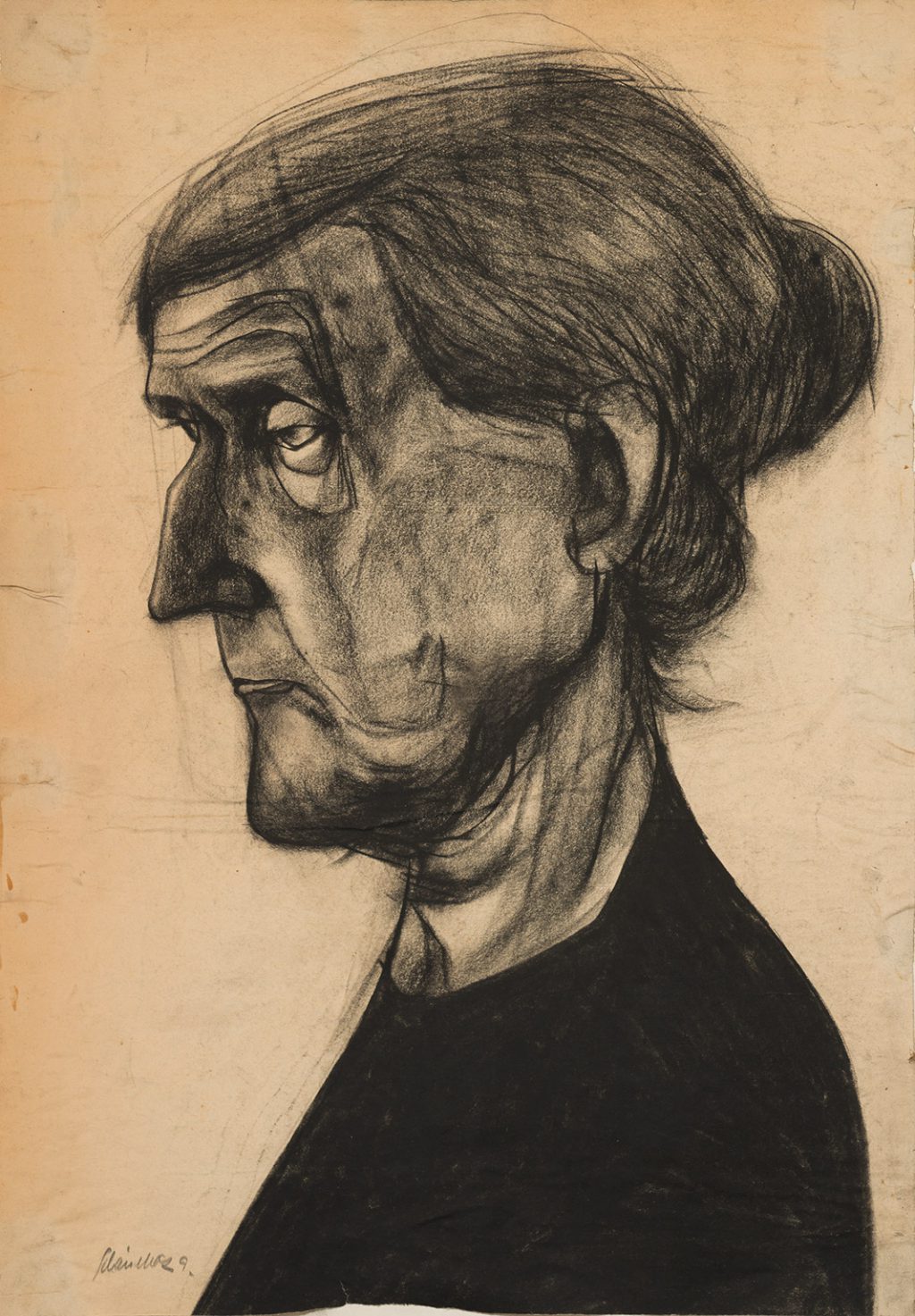
Bildnis
1955
Pitt chalk on paper; on verso: graphite and Pitt chalk
56.8 × 40 cm
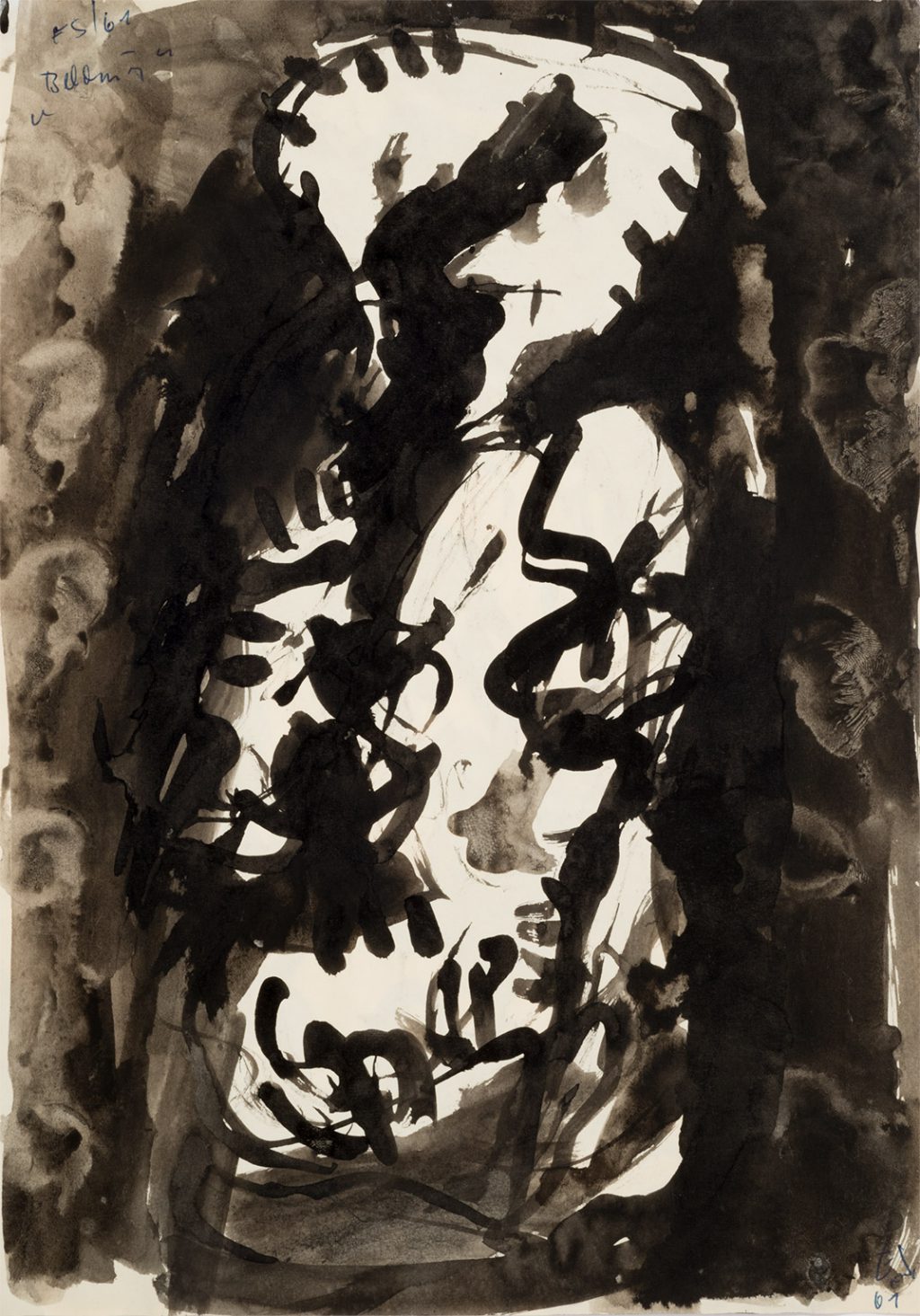
Bildnis
1961
Ink on paper; on verso: ink, crossed out with wax crayon
29.6 × 20.8 cm
Text
Eugen Schönebeck (*1936) is one of the most significant post-war German artists. All the major social, political and artistic upheavals of the time are reflected in his life and work. He grew up in Saxony at the end of the Second World War, where he begun his artistic education as an apprentice in decorational painting. He continued his training in East Berlin, before leaving the young GDR for West Berlin – then the epicenter of non-representational art. Together with fellow student Georg Baselitz, he developed a new style of figurative painting. With the large-format portraits of socialist leaders he made in the mid-1960s, the artist pre-empted issues raised by the protests of 1968.
Only a few years after graduating, Schönebeck withdrew himself from the art market. He shifted his art to a private sphere, not least because there was no sociopolitical utopia to follow the movement of 1968. He stopped painting in oils, but continued to draw – and became the mythical pioneer of new German figuration.
Schönebeck produced about 60 paintings, and in recent years these have been published and partly exhibited, but the drawings, of which there are more than a thousand, remain largely unknown. As a result, no light has yet been shed on Schönebeck’s stylistic and thematic development, for the drawings form a corpus of work that is, for the most part, sufficient unto itself and rarely mirrored in his paintings.
Continue reading
This exhibition of the artist’s formative years, confined to selected series of works on paper, is hence a departure into uncharted territory. We follow the artistic beginnings of the young Schönebeck – from his apprenticeship as a painter-decorator in Saxony, via his training at the school of decorative art in East Berlin, to his study of fine art at the Hochschule für Bildende Künste in West Berlin. During that time, he absorbed the influence of his teachers, but was also inspired by art movements in Germany, the United States and France, walking a tightrope between his own and borrowed content, between East and West Germany, and between the figurative and the abstract. His early work thus reveals all the ingredients that gave rise to his iconic major works of the 1960s, to which we have dedicated a small selection of works – exhibited as a “preview” of sorts.
Catalogue
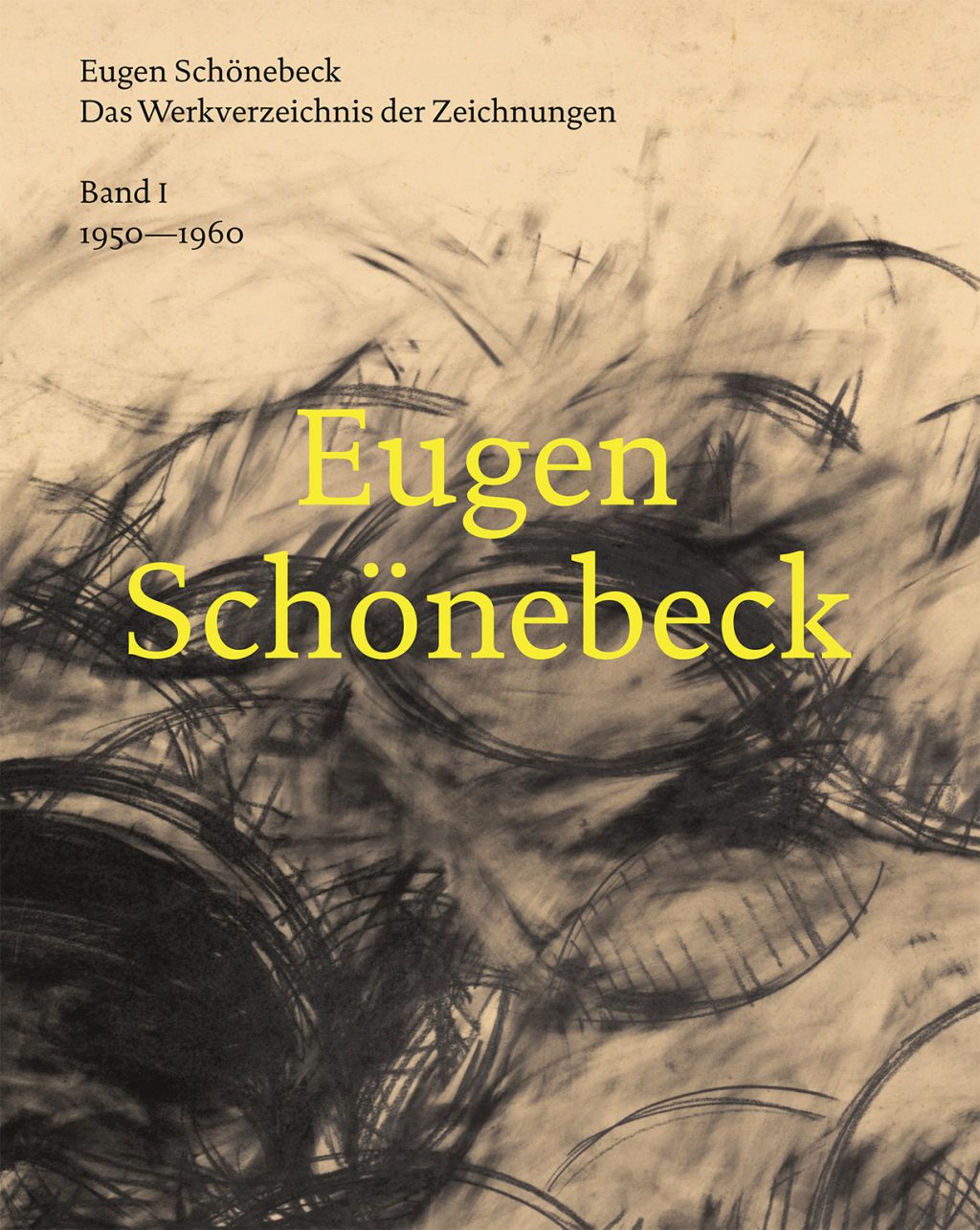
The Catalogue Raisonné of the Drawings
Volume 1: 1950 to 1960
Edited by
Juerg Judin and Pay Matthis Karstens
Text by Pay Matthis Karstens
In German and English
310 × 245 mm
224 pages, hardcover
429 color ill.
Published by Verlag der Buchhandlung
Walther König, Cologne 2020
ISBN 978-3-96098-920-2
